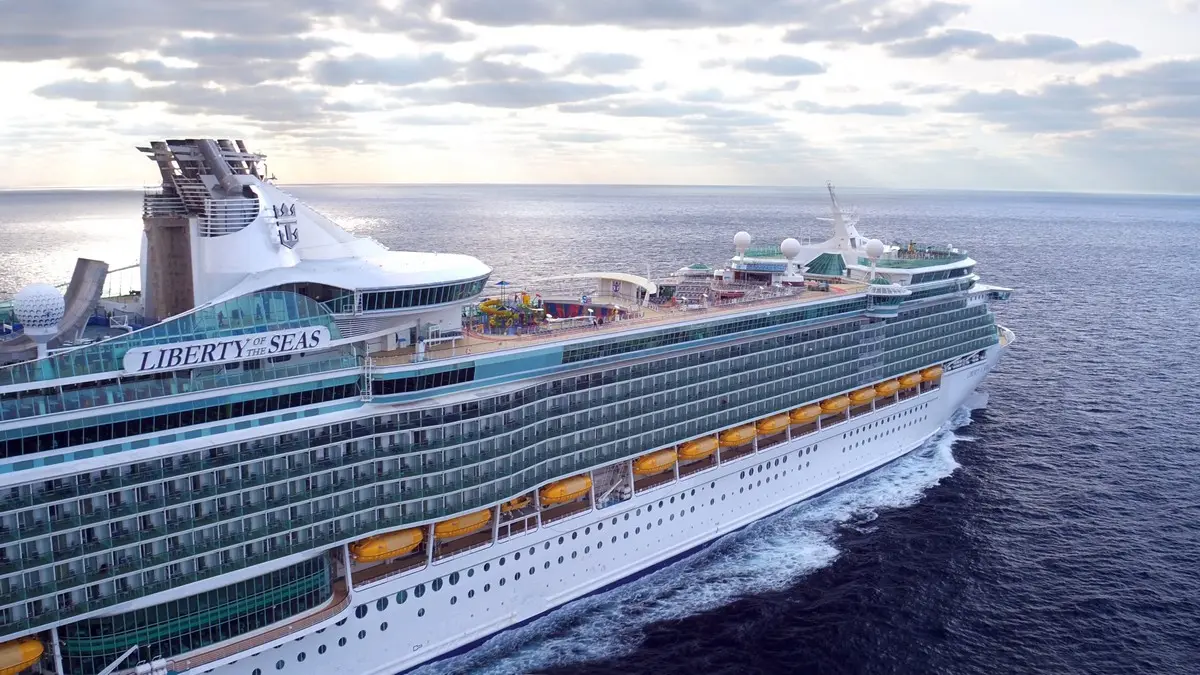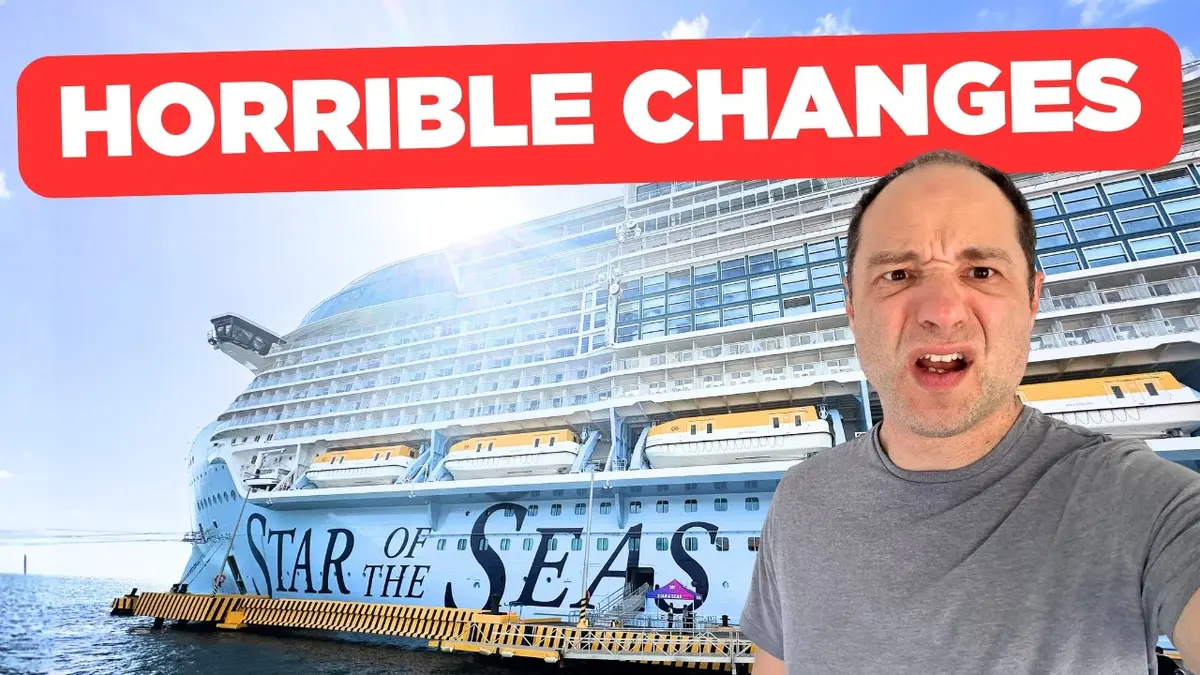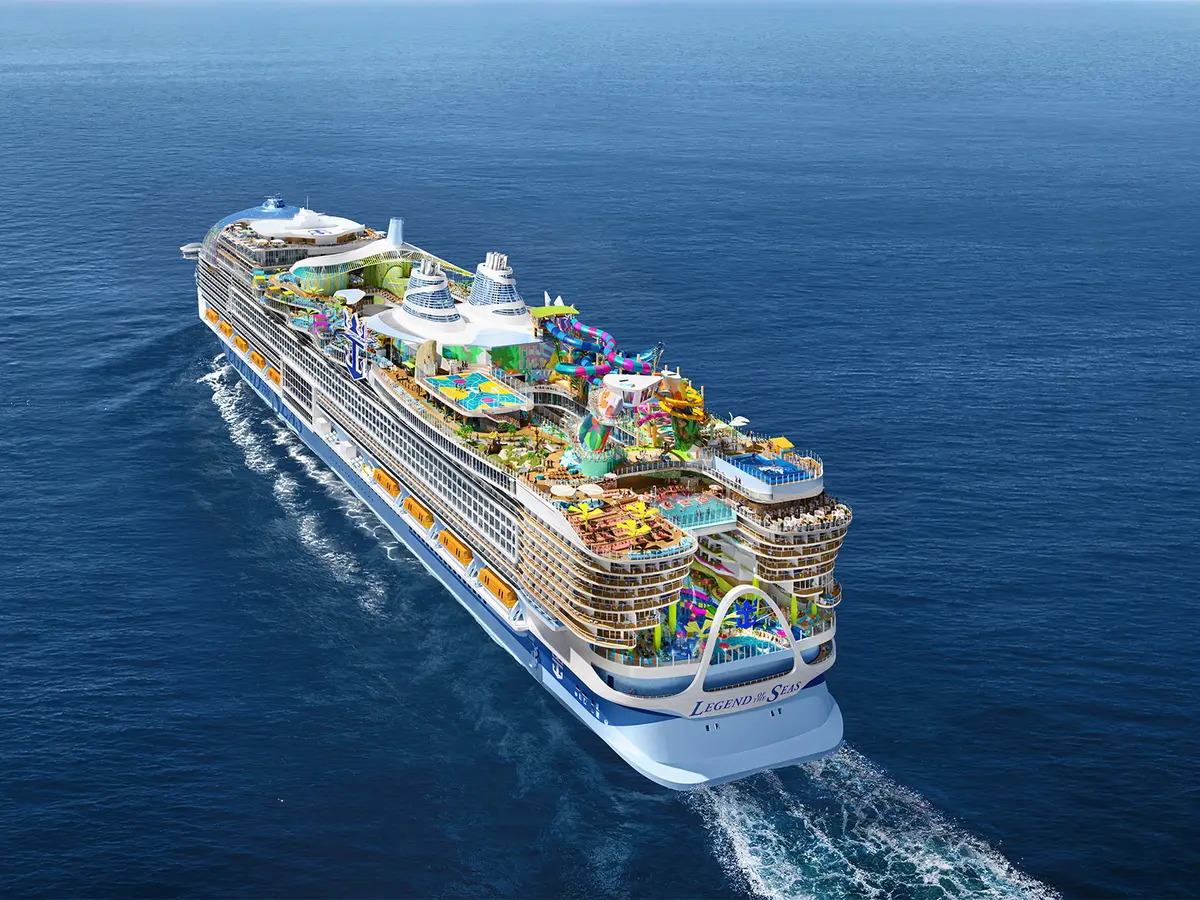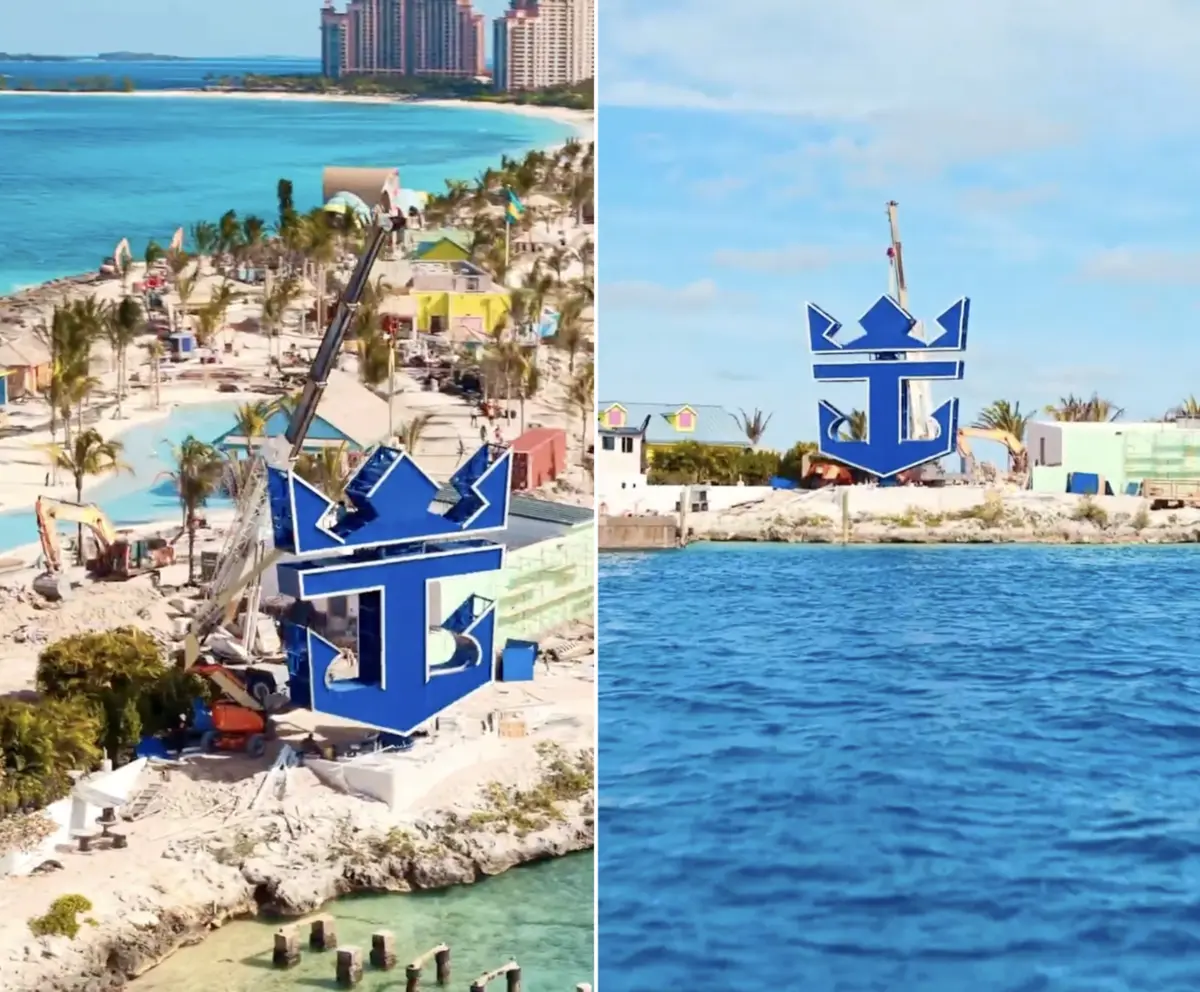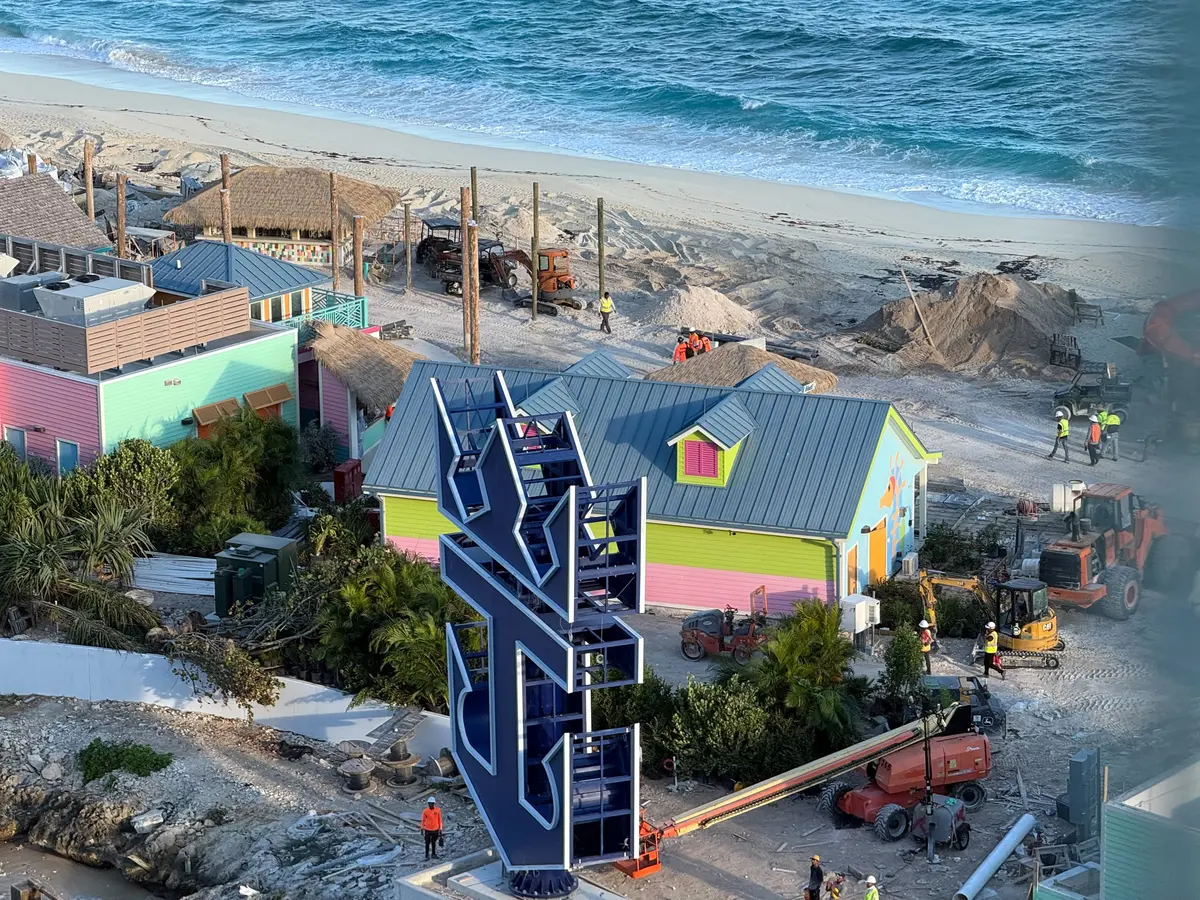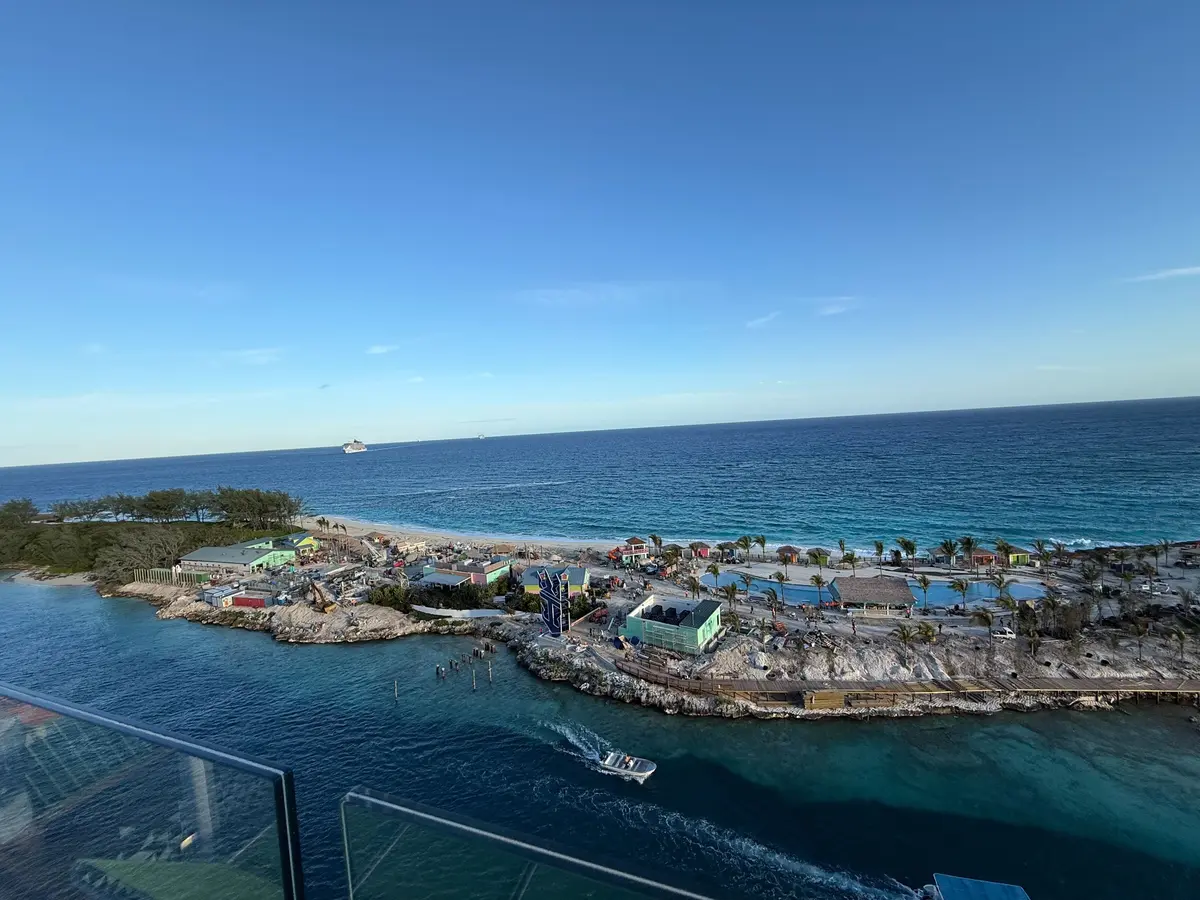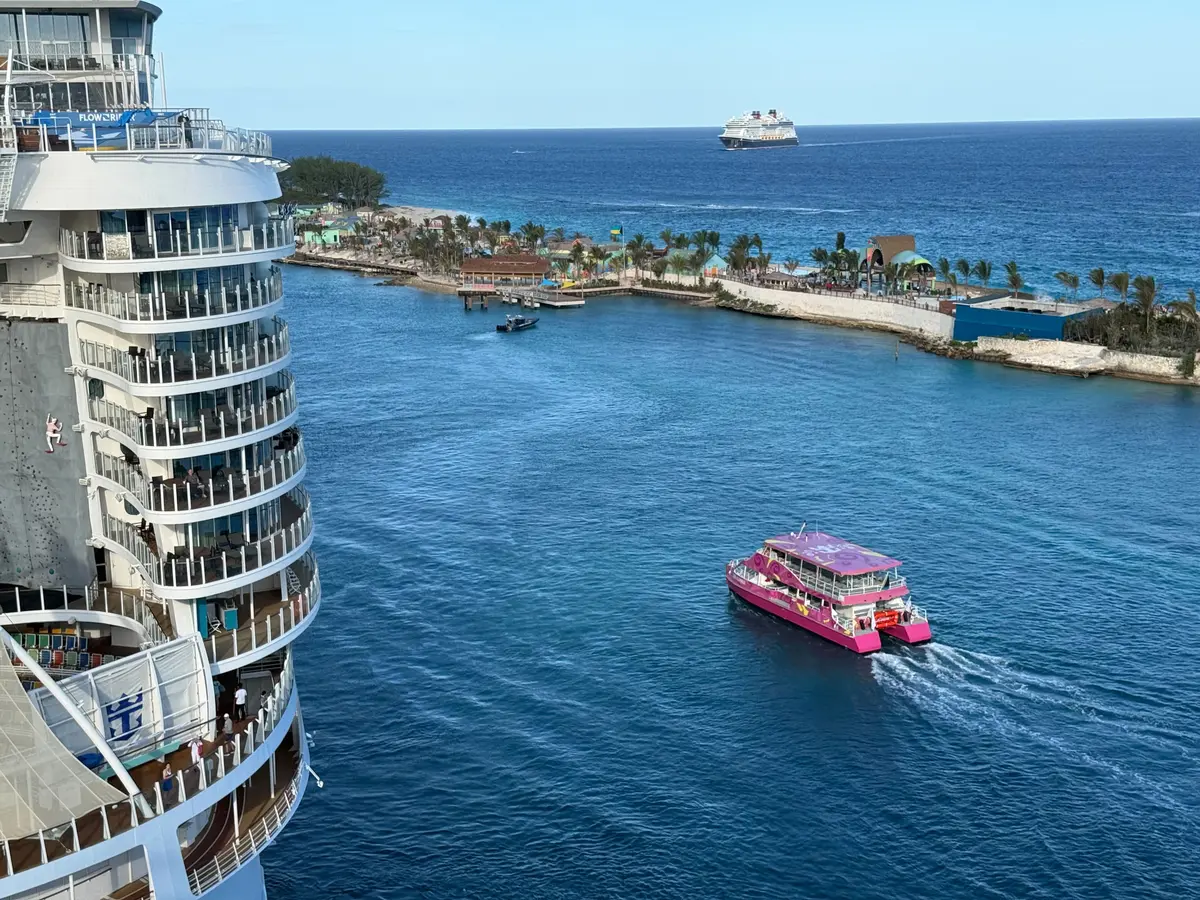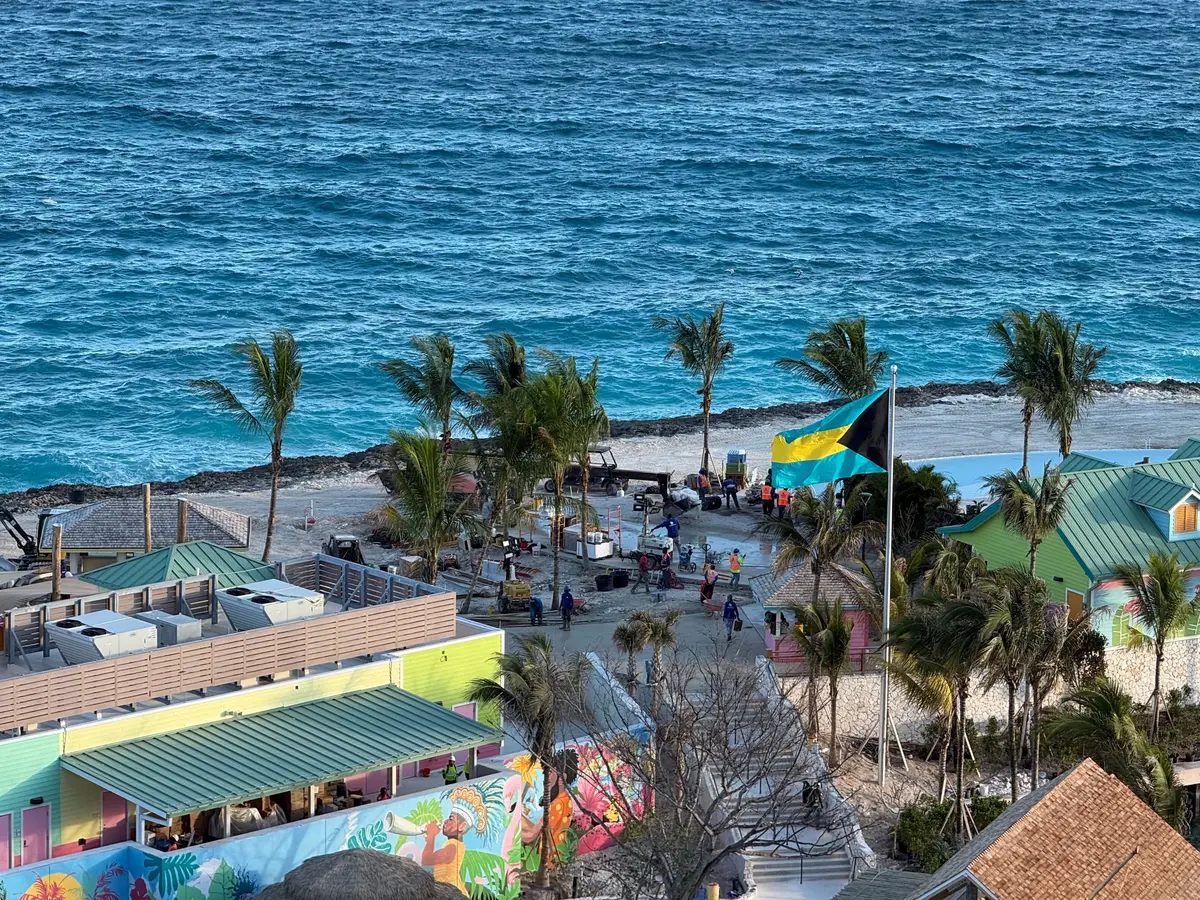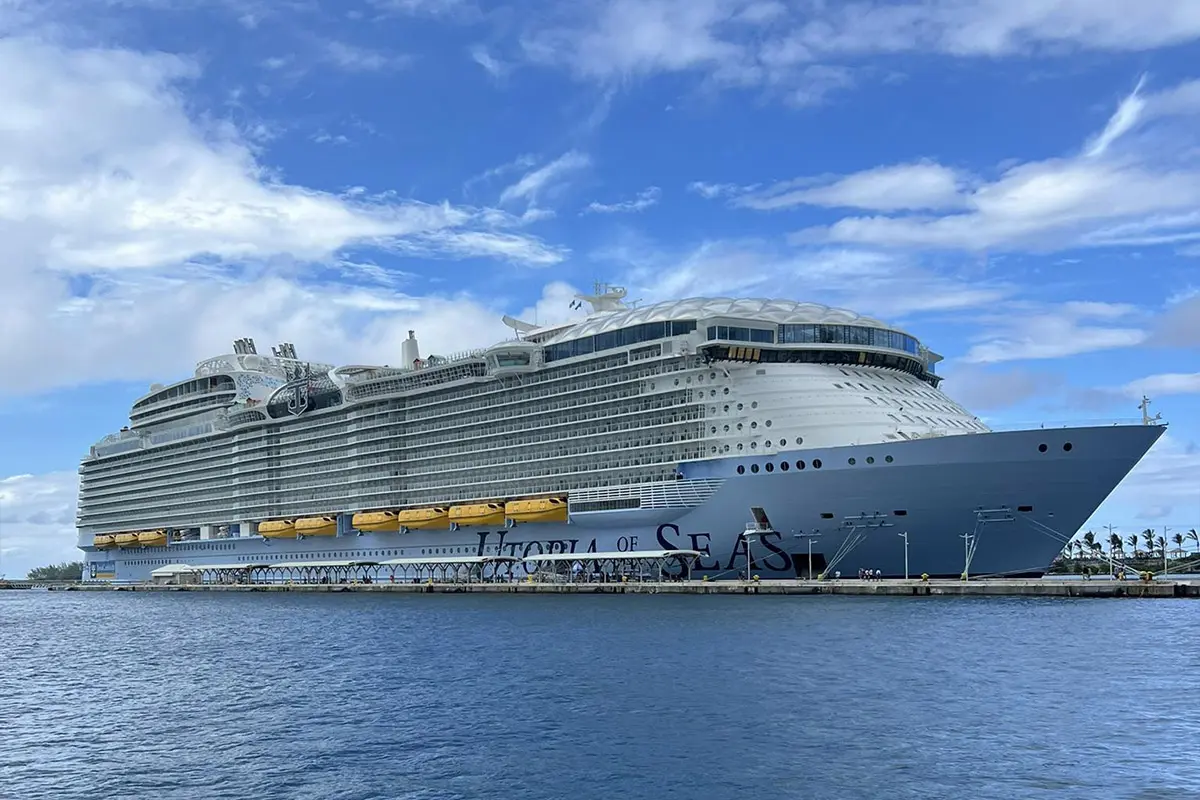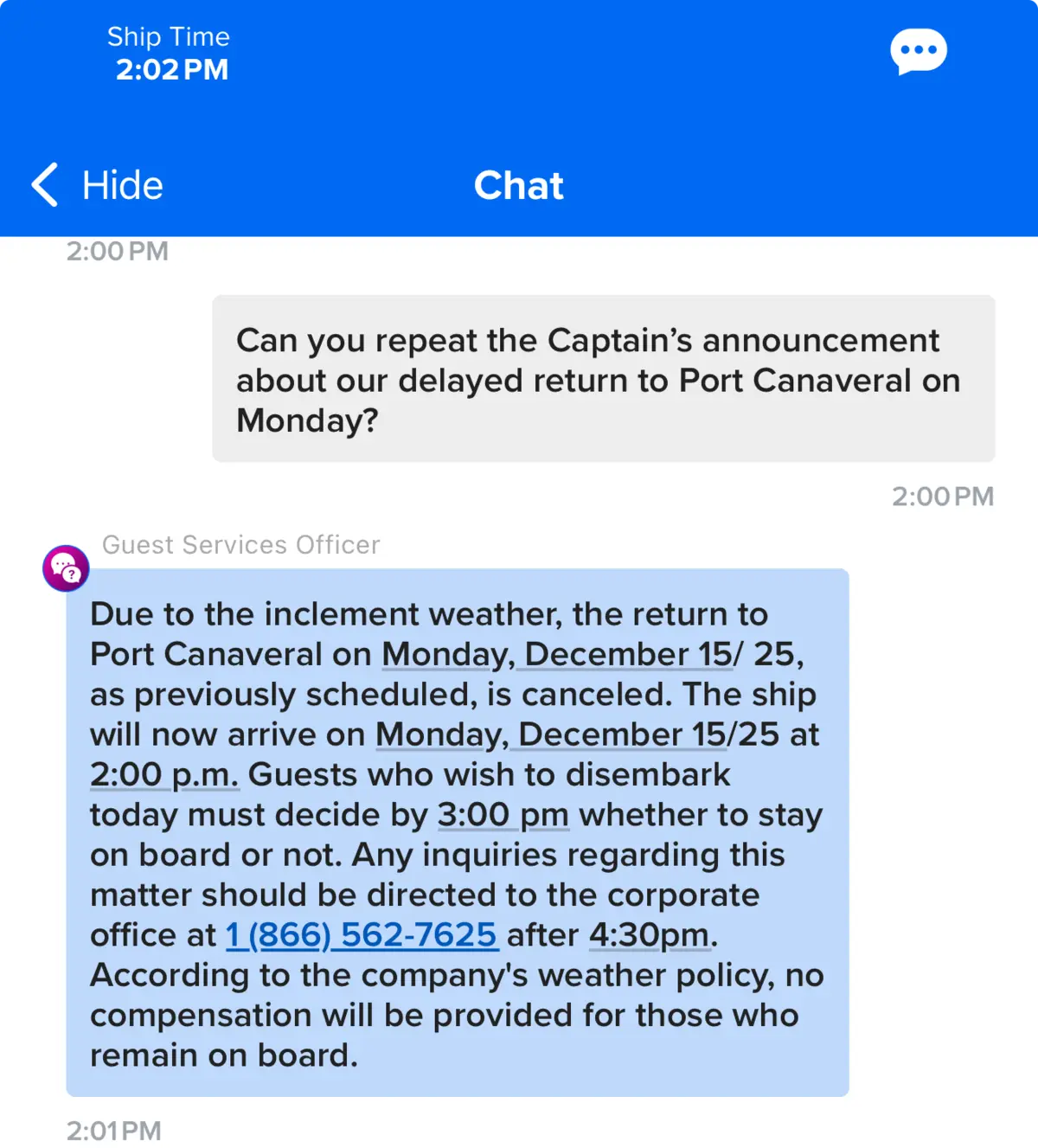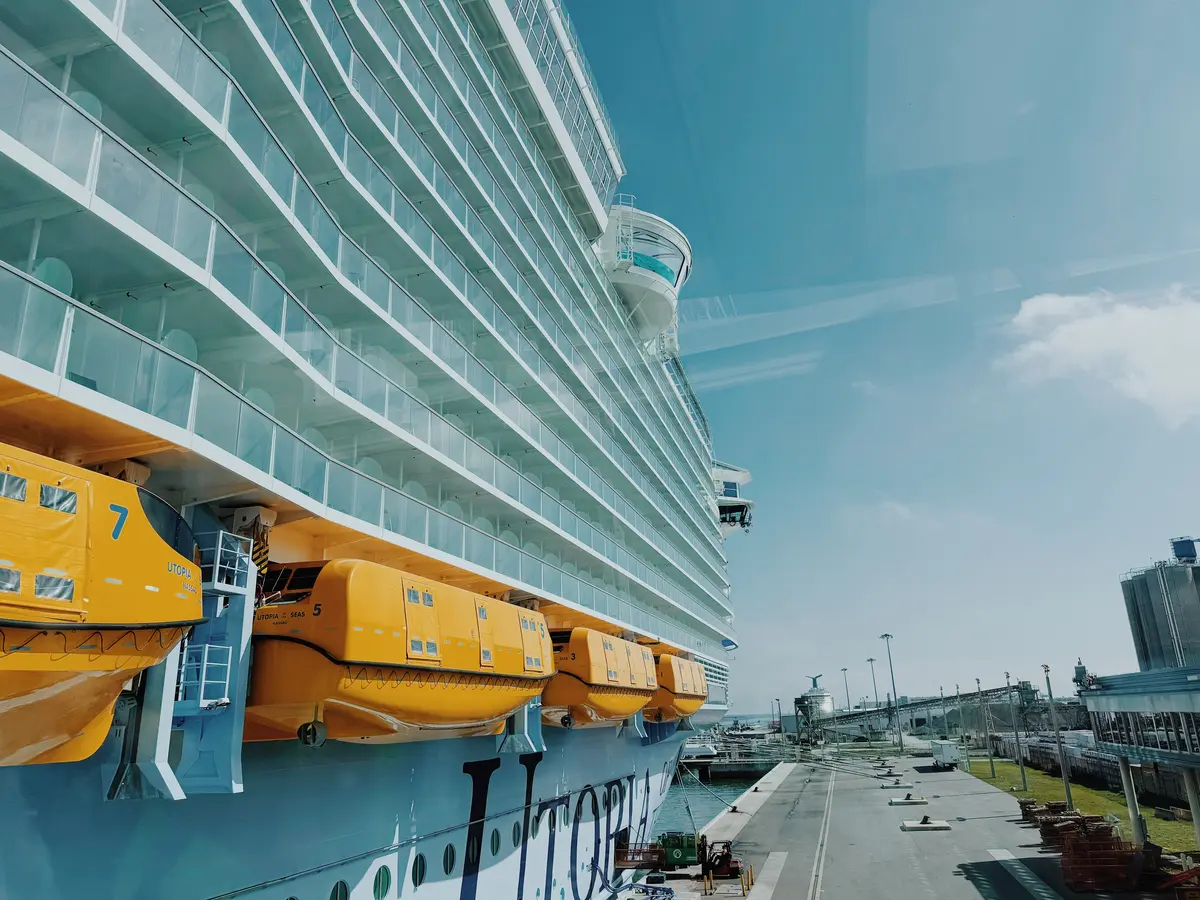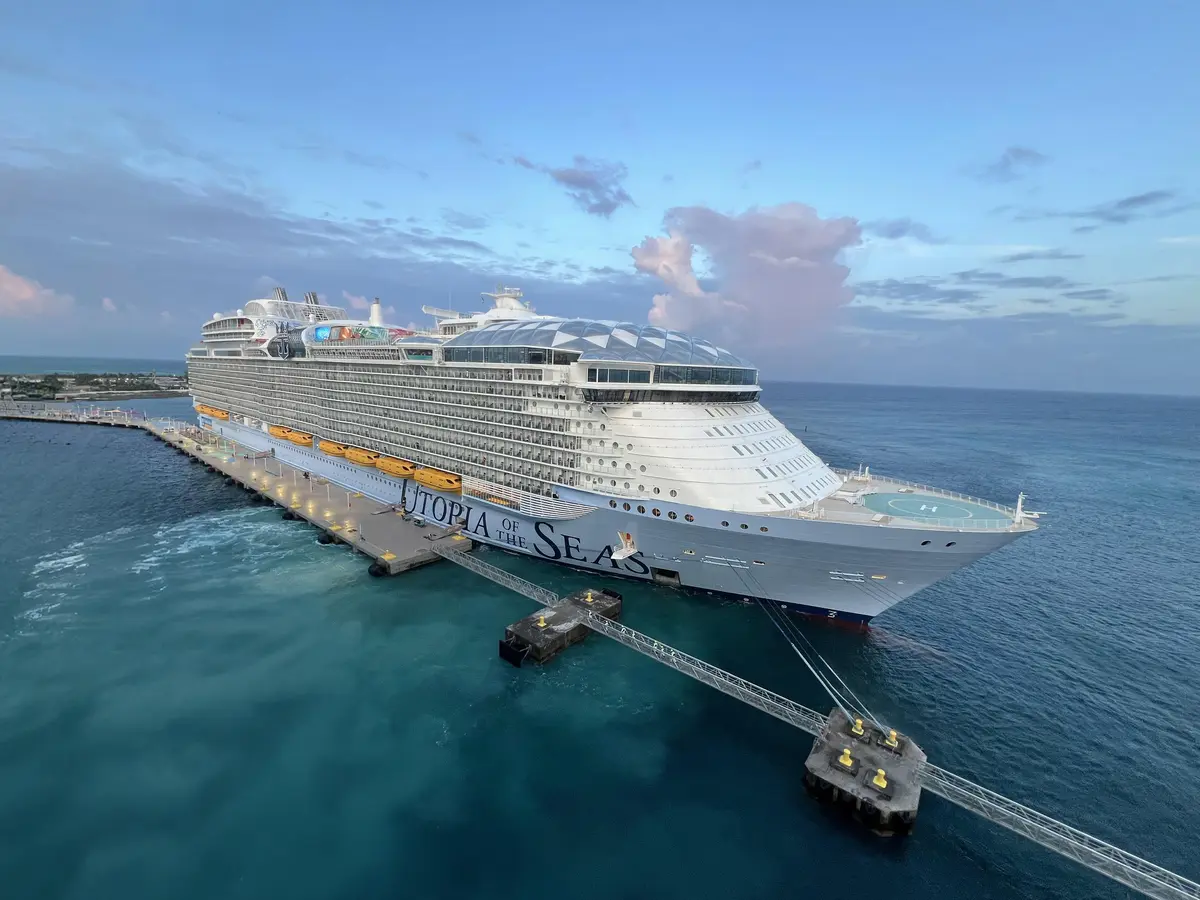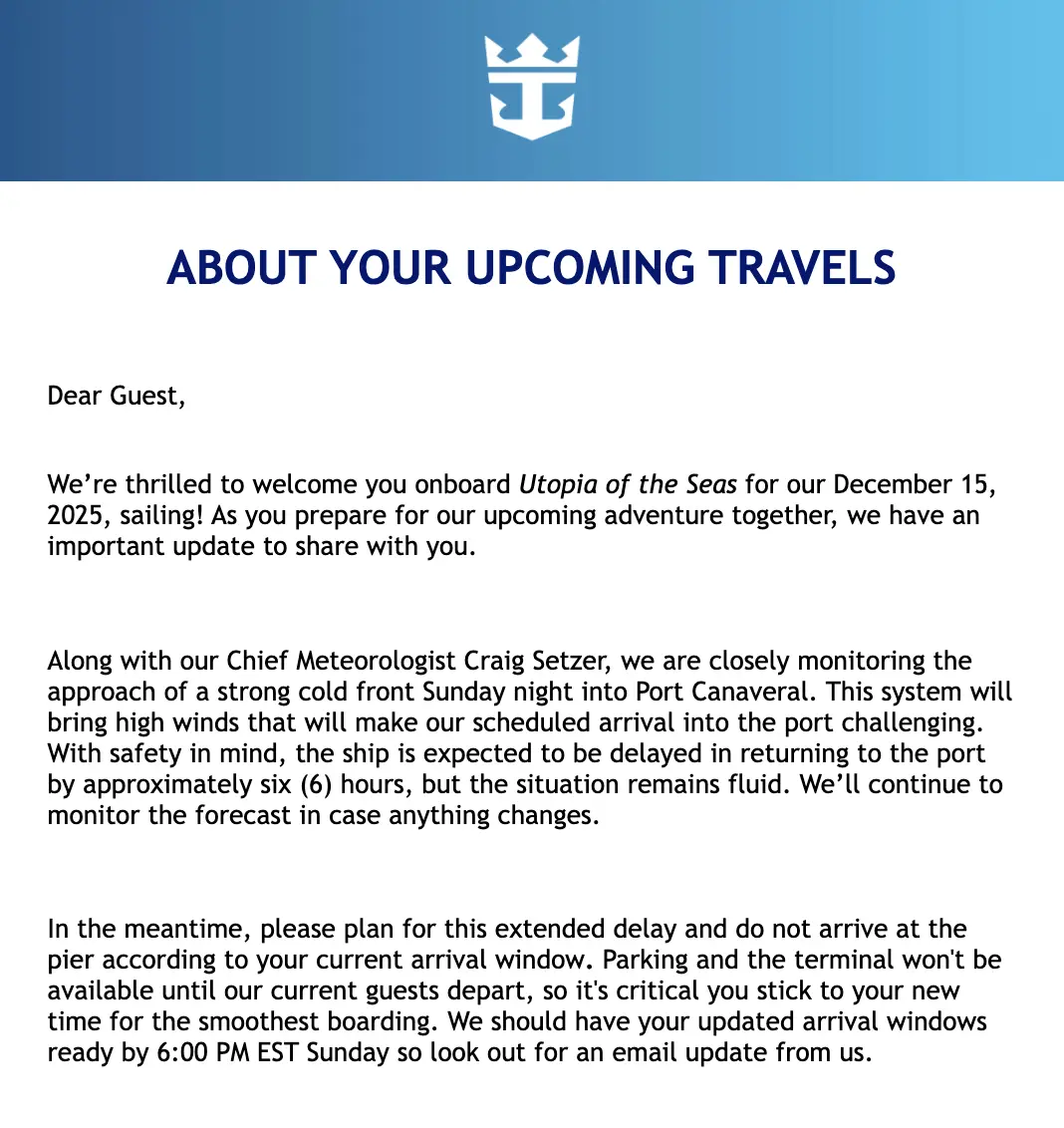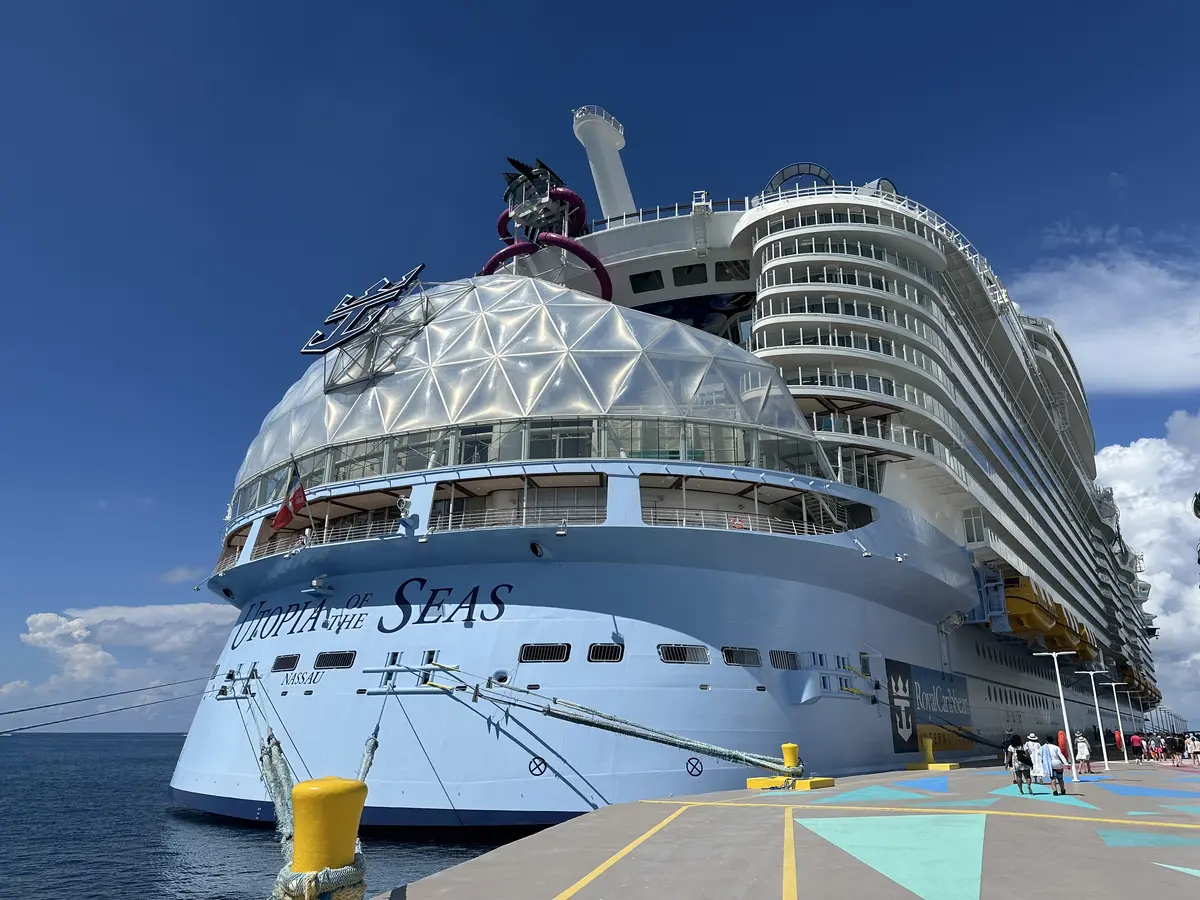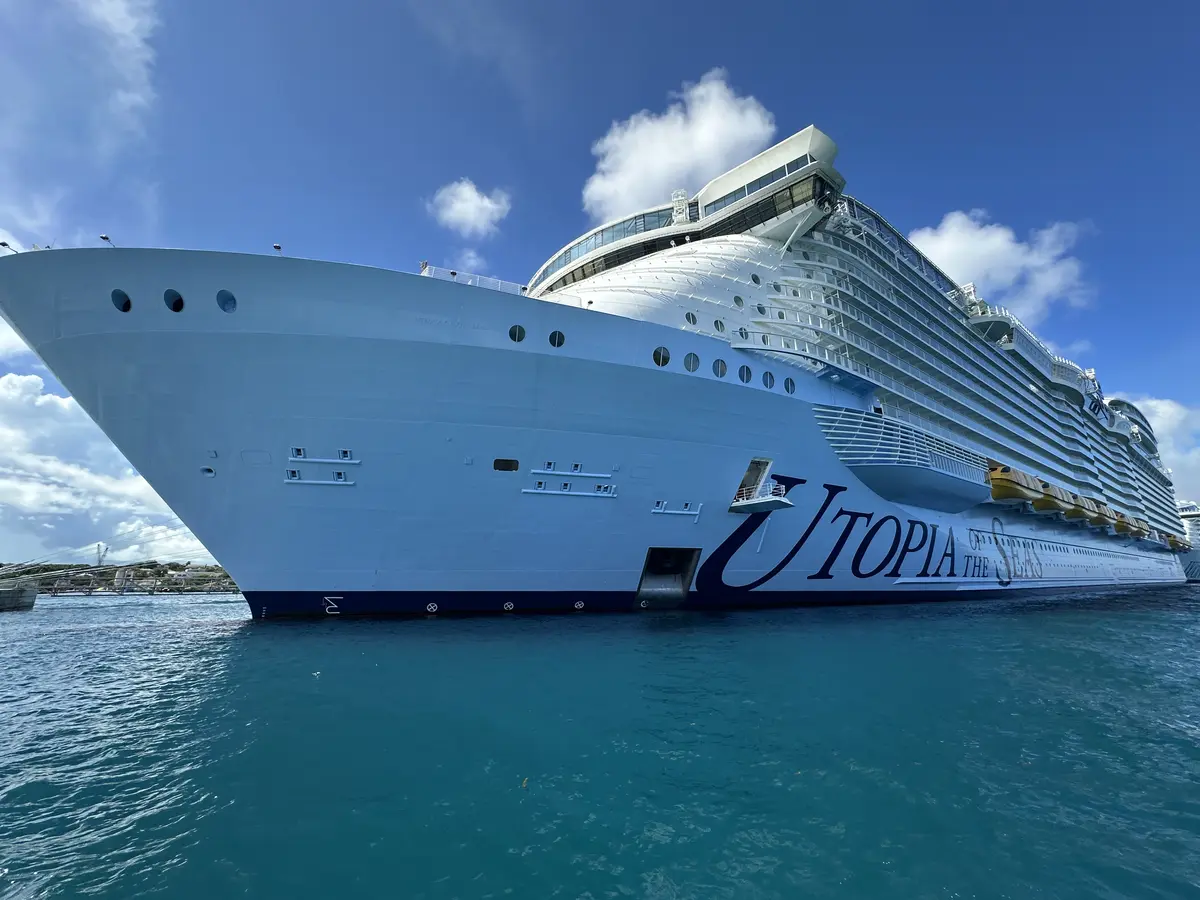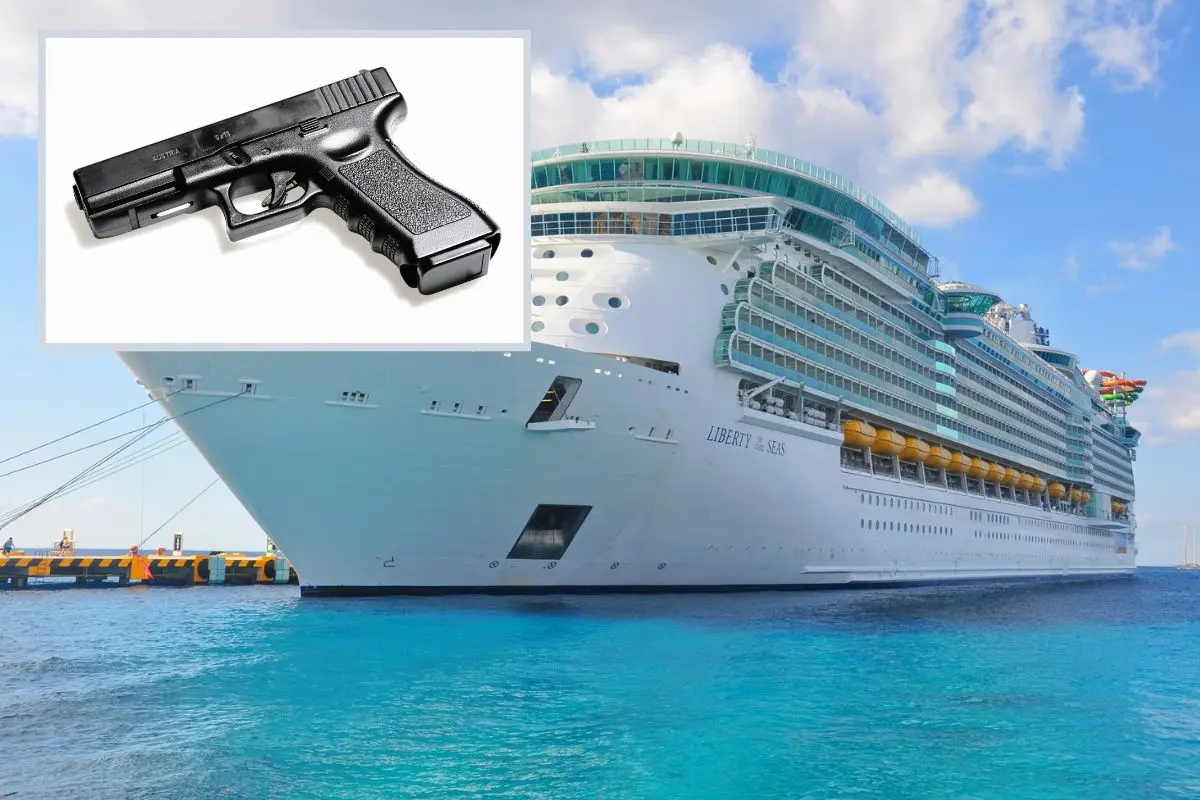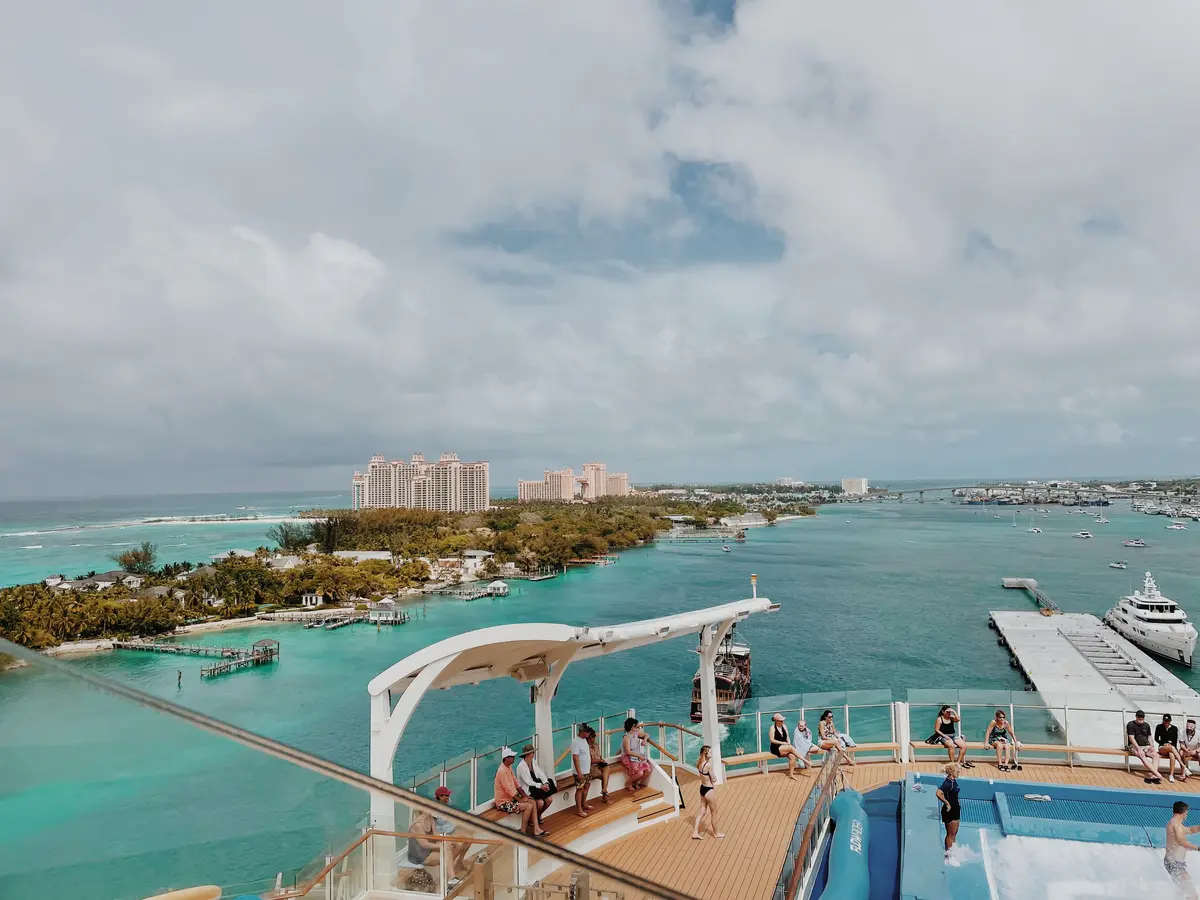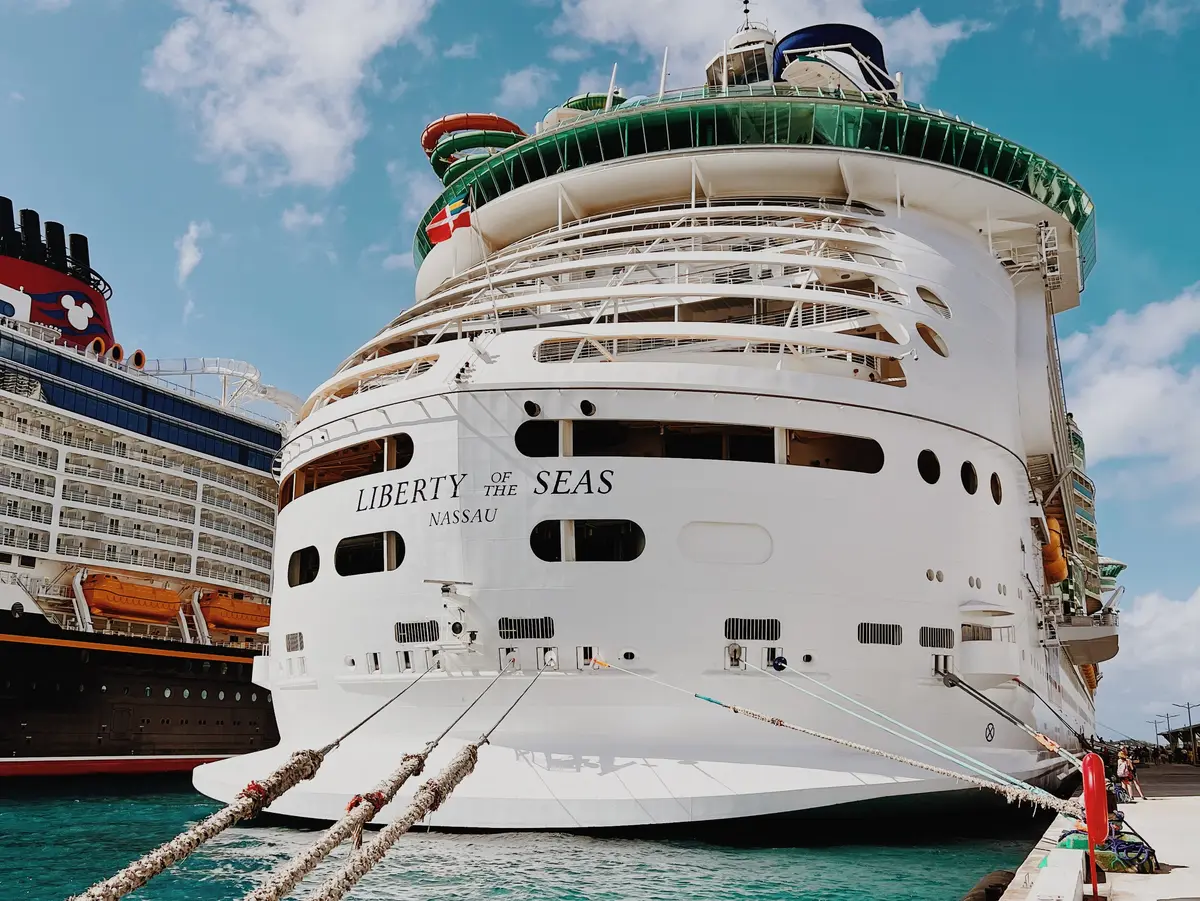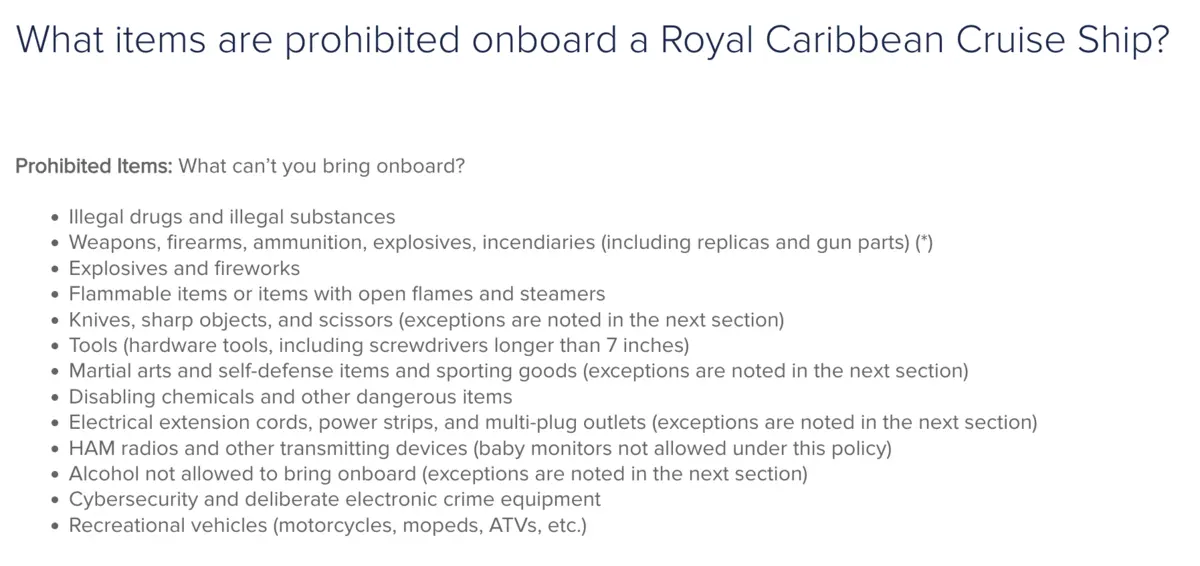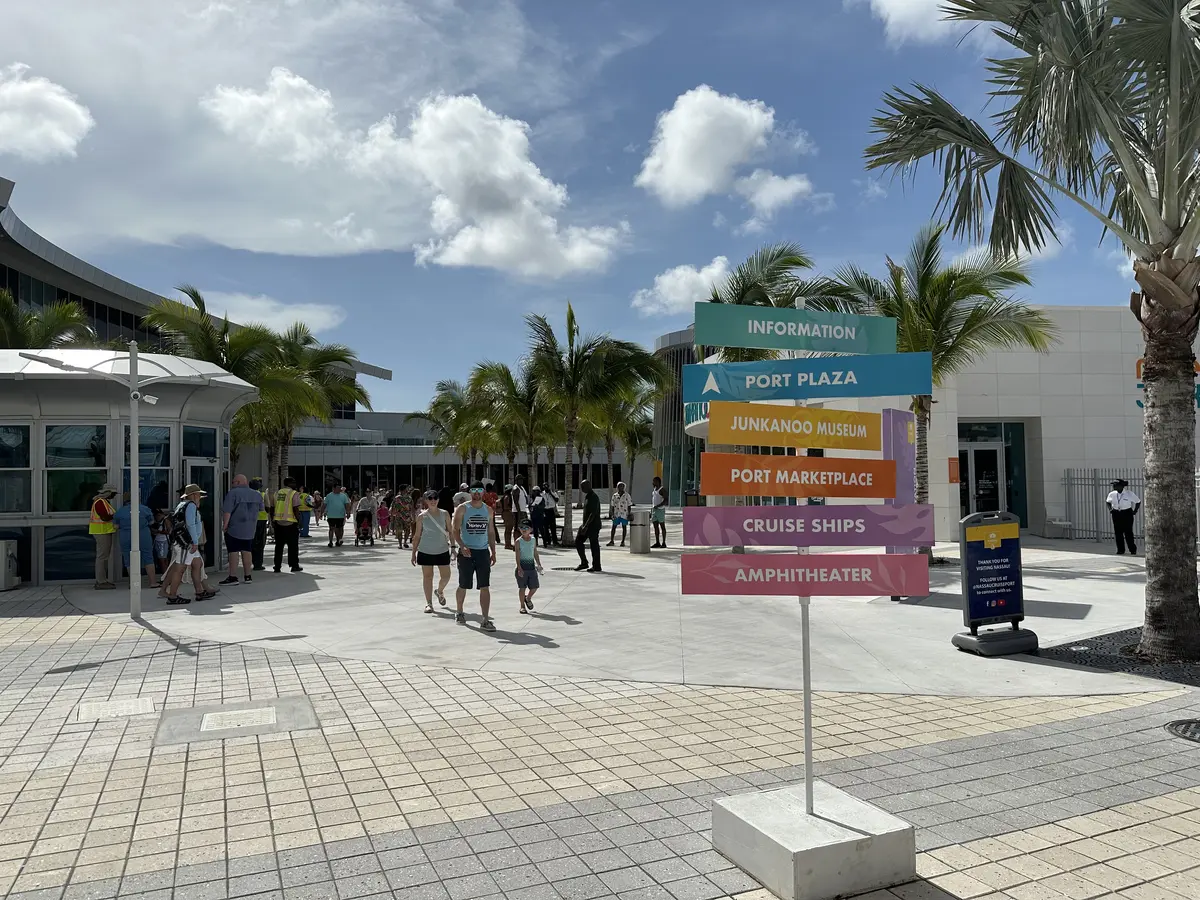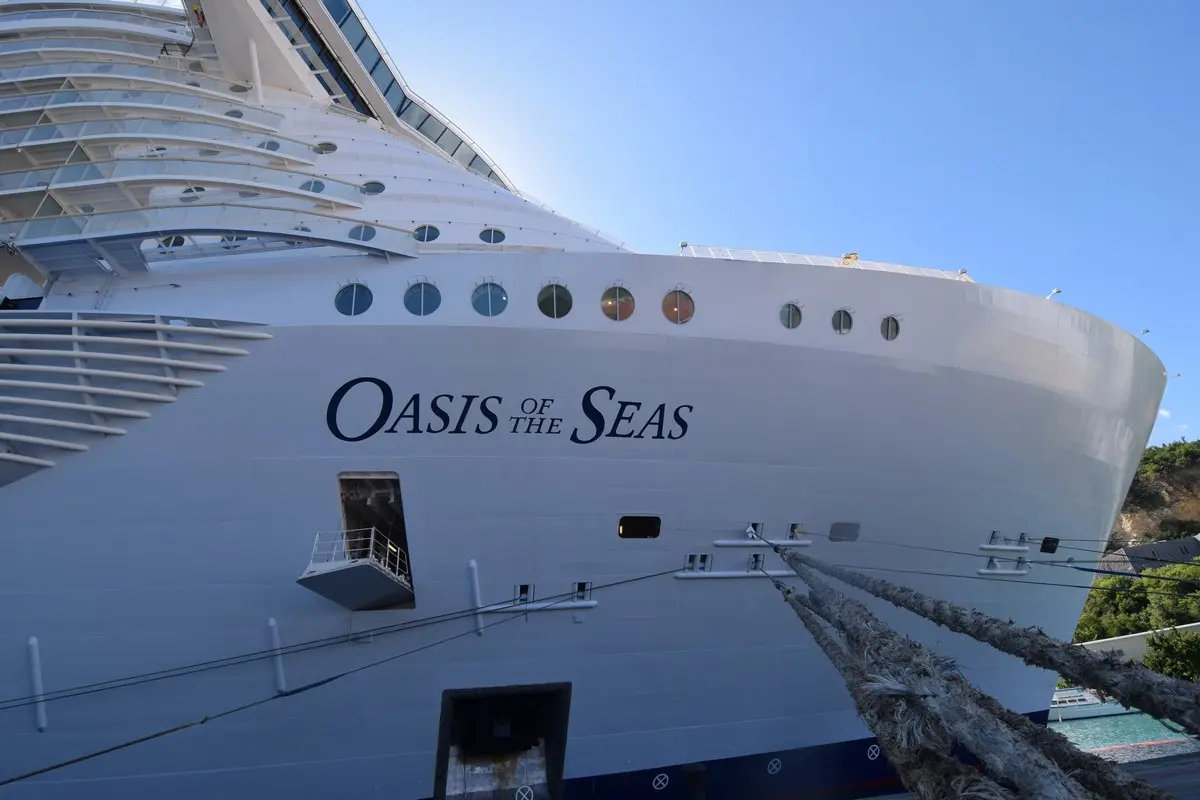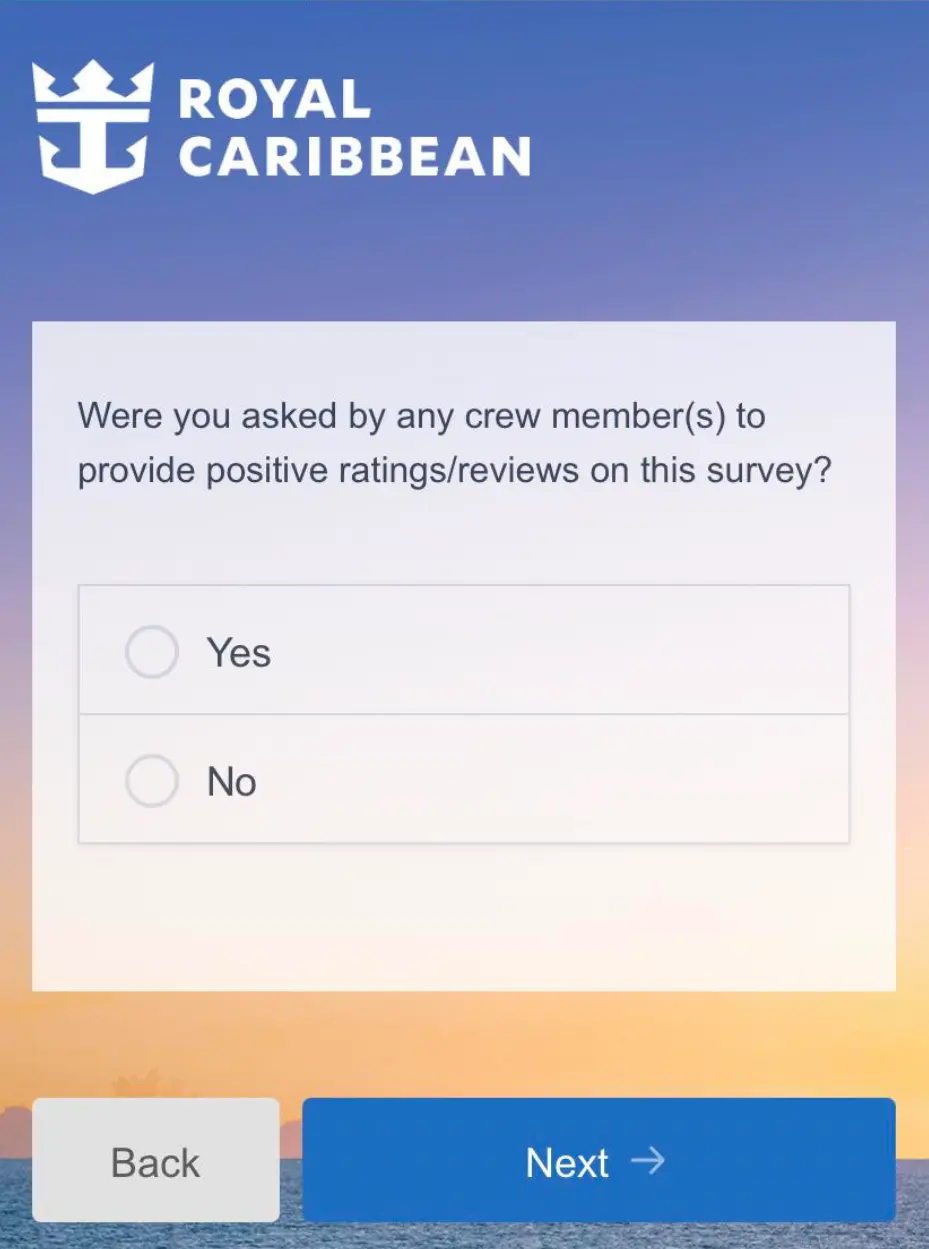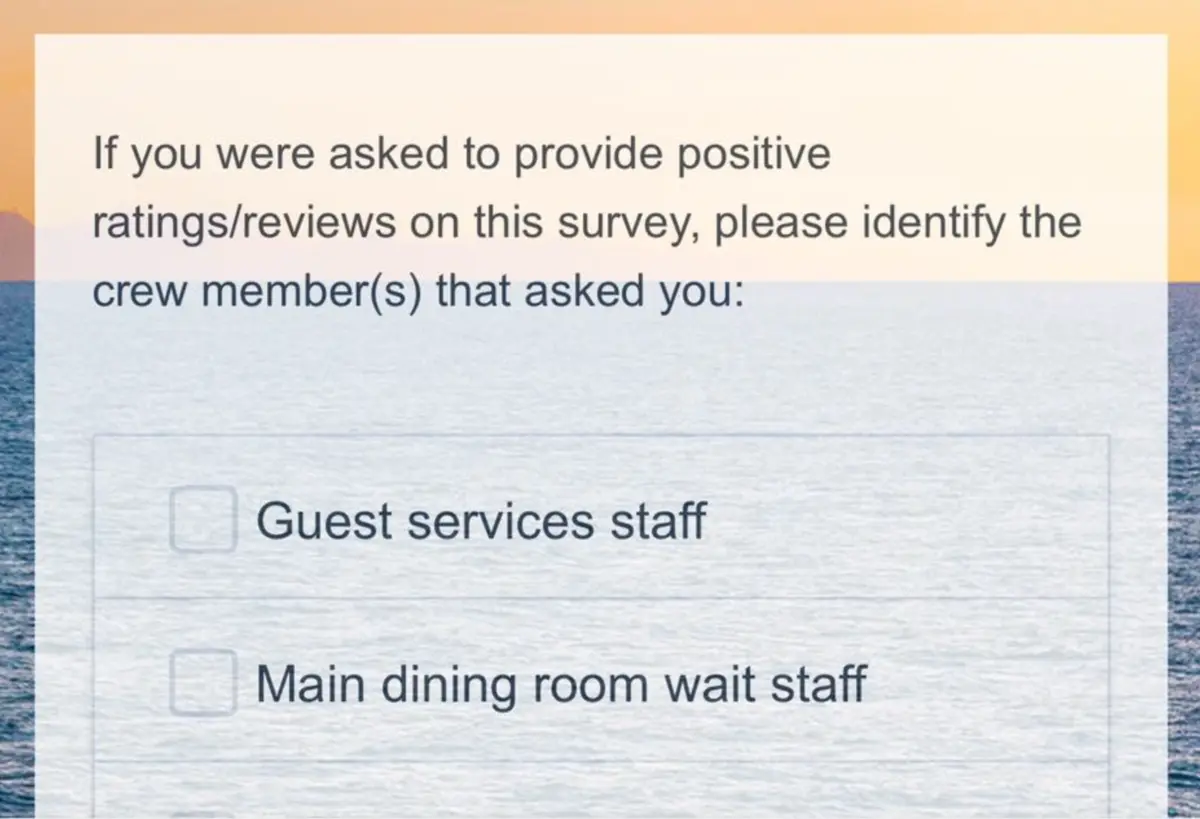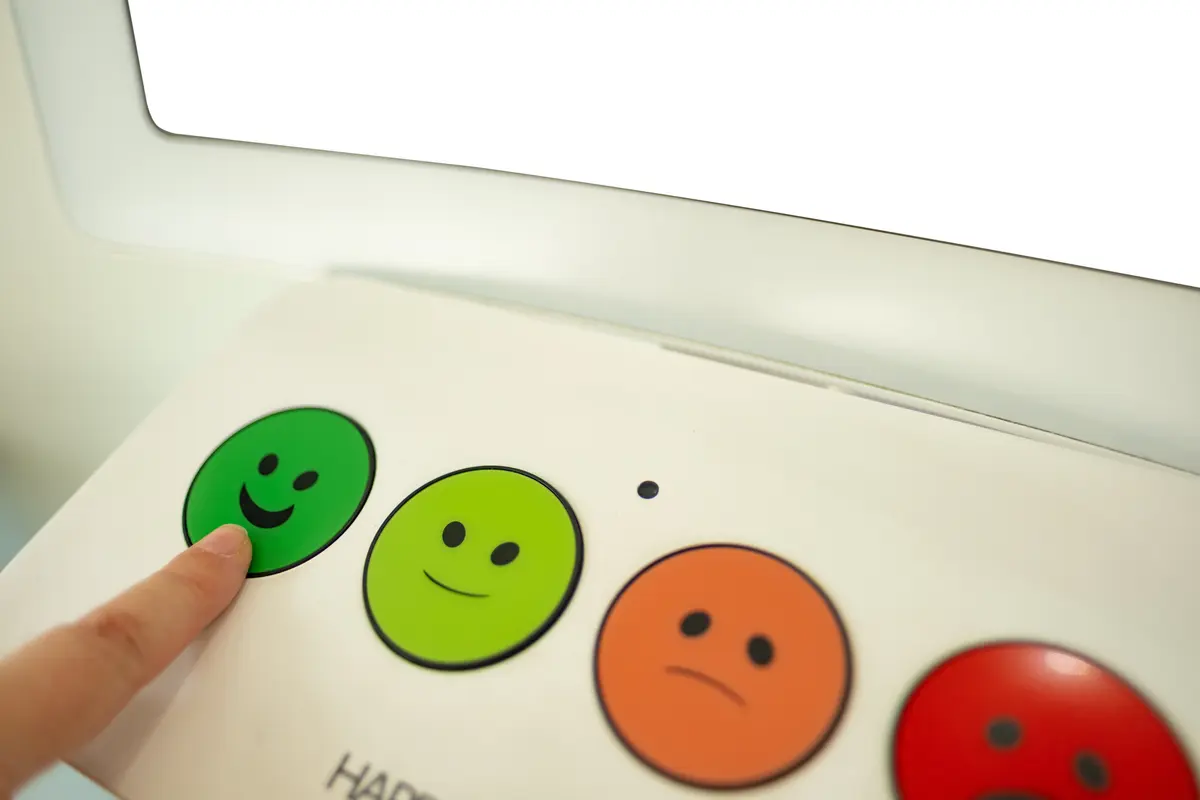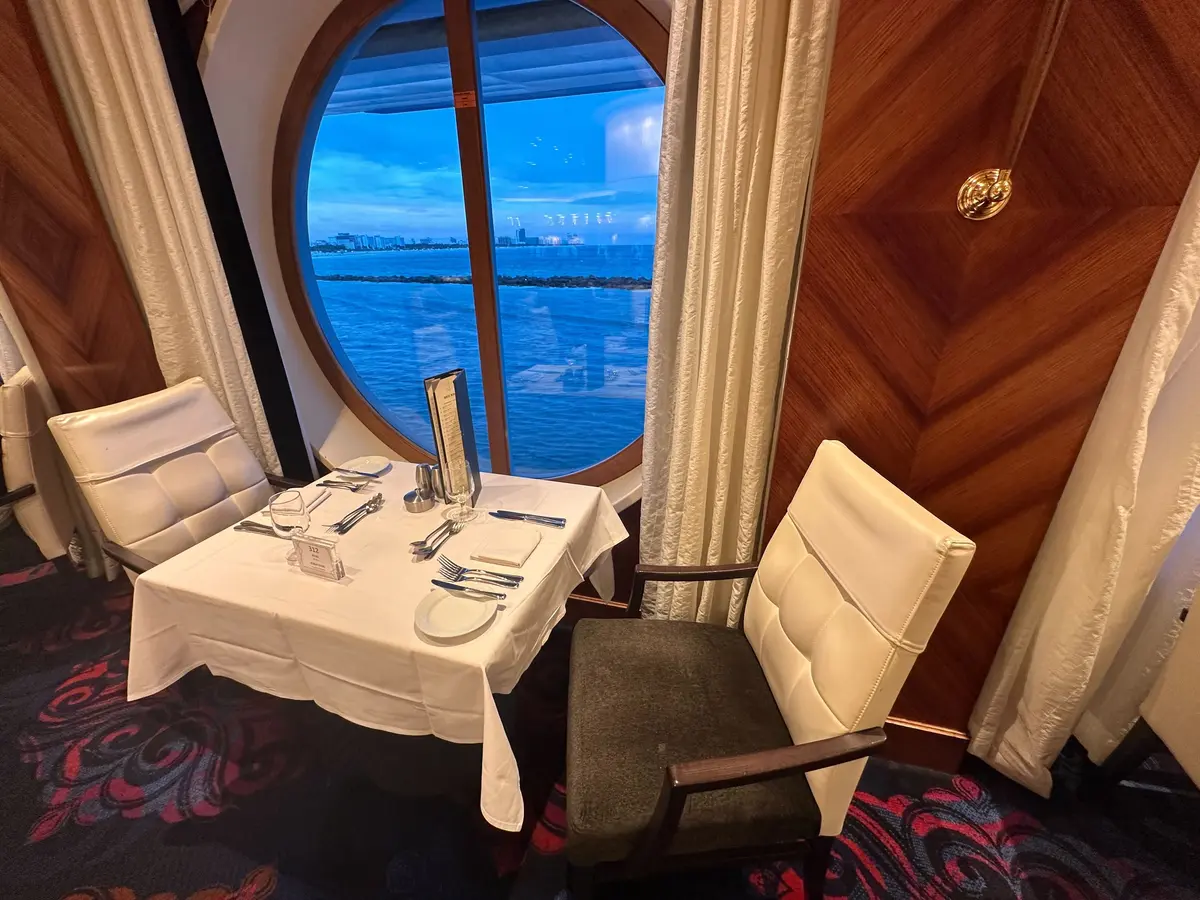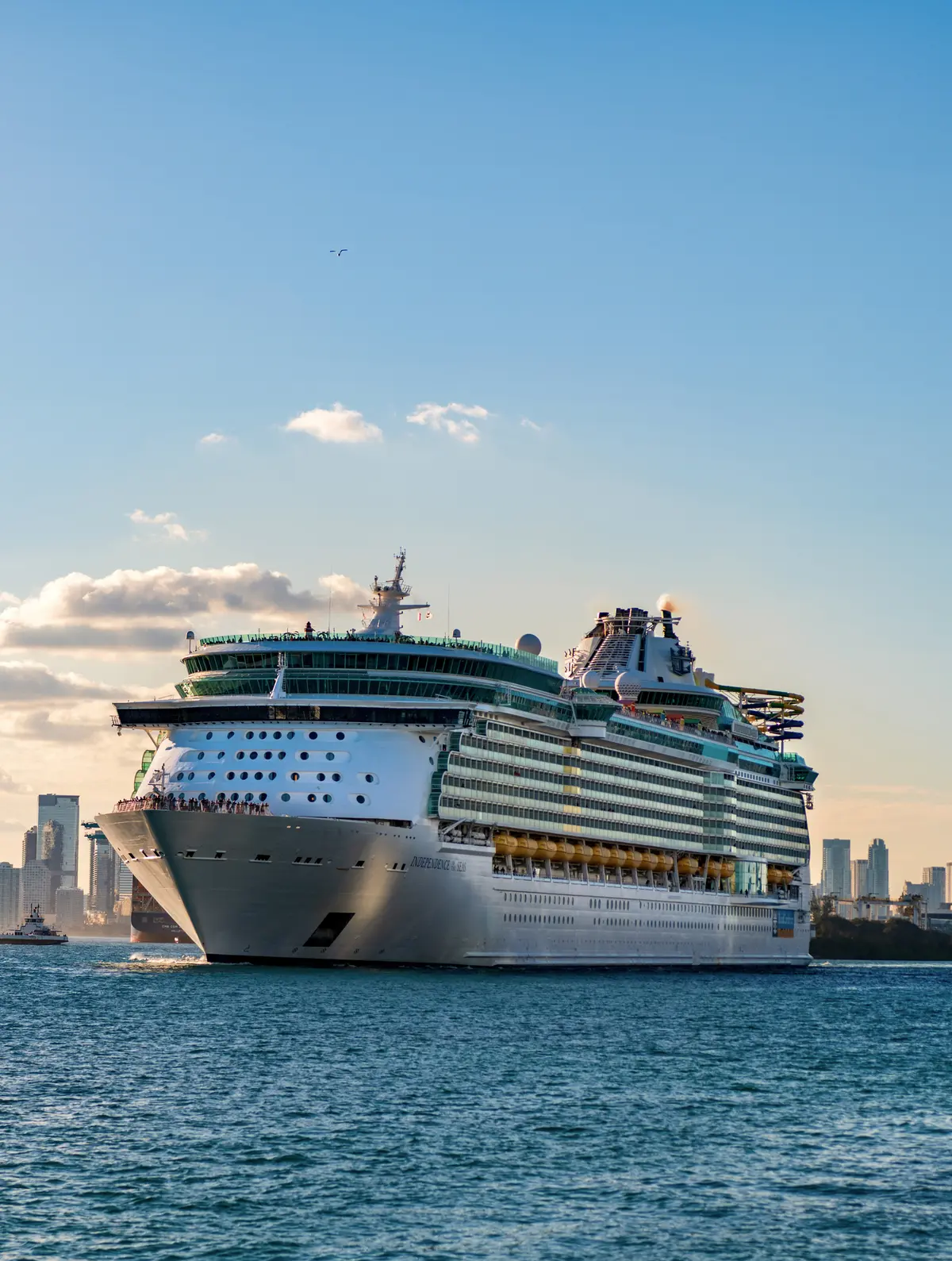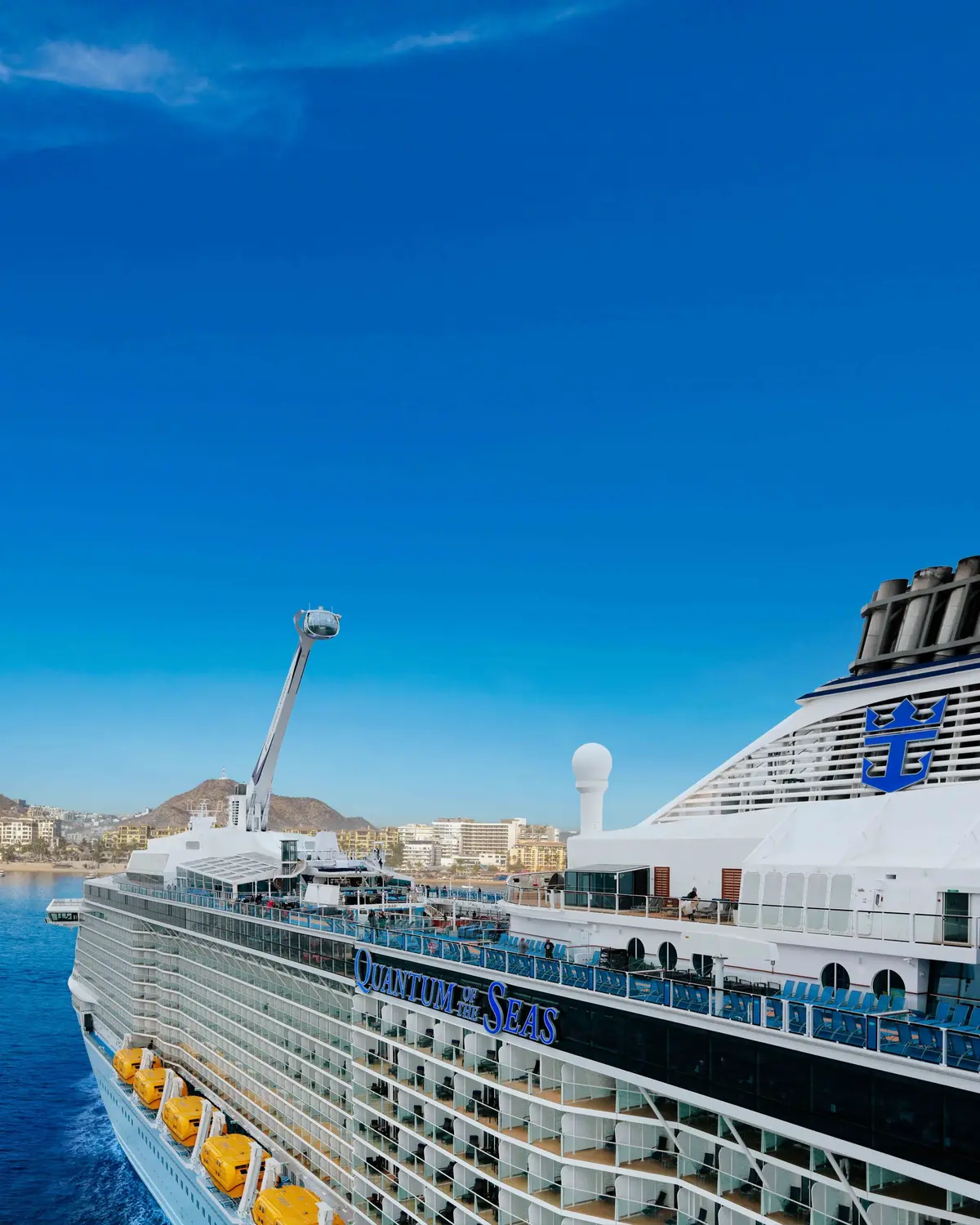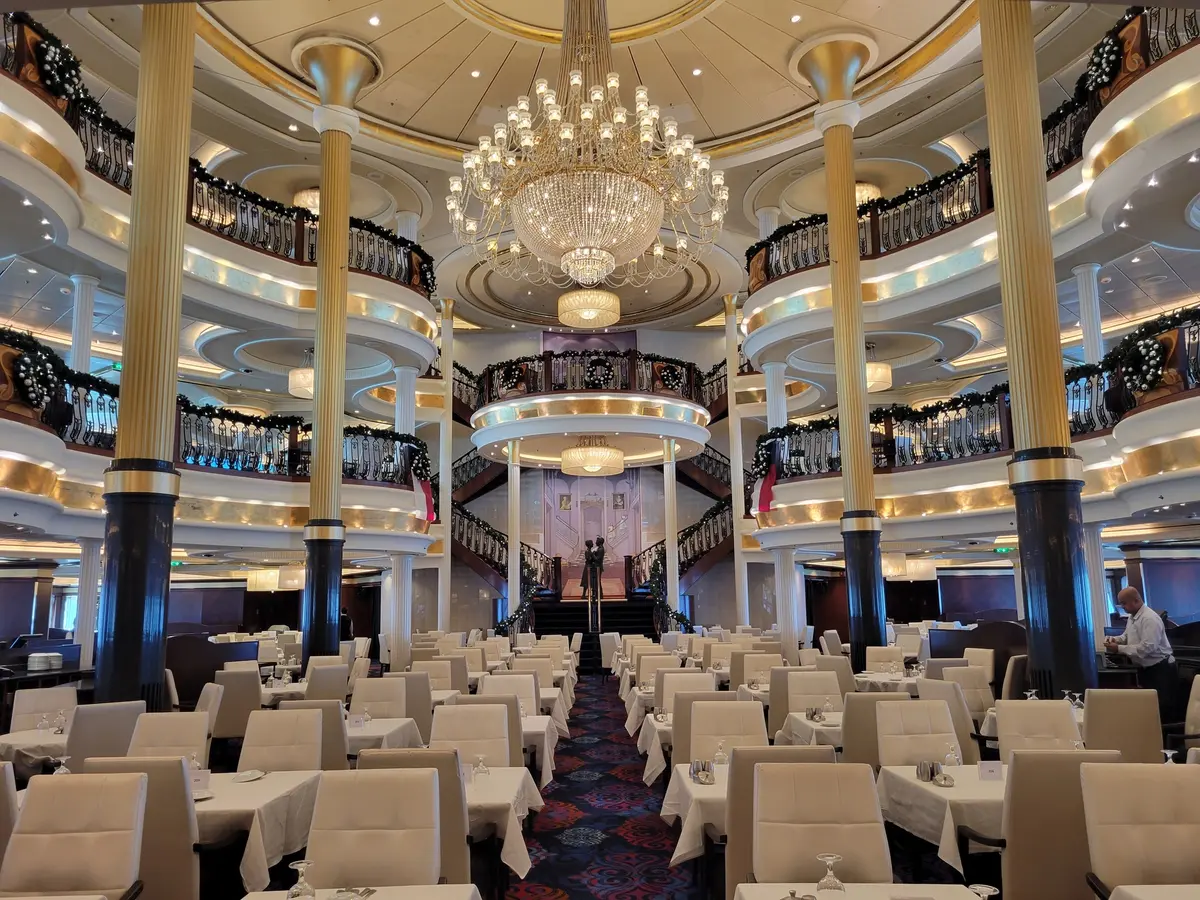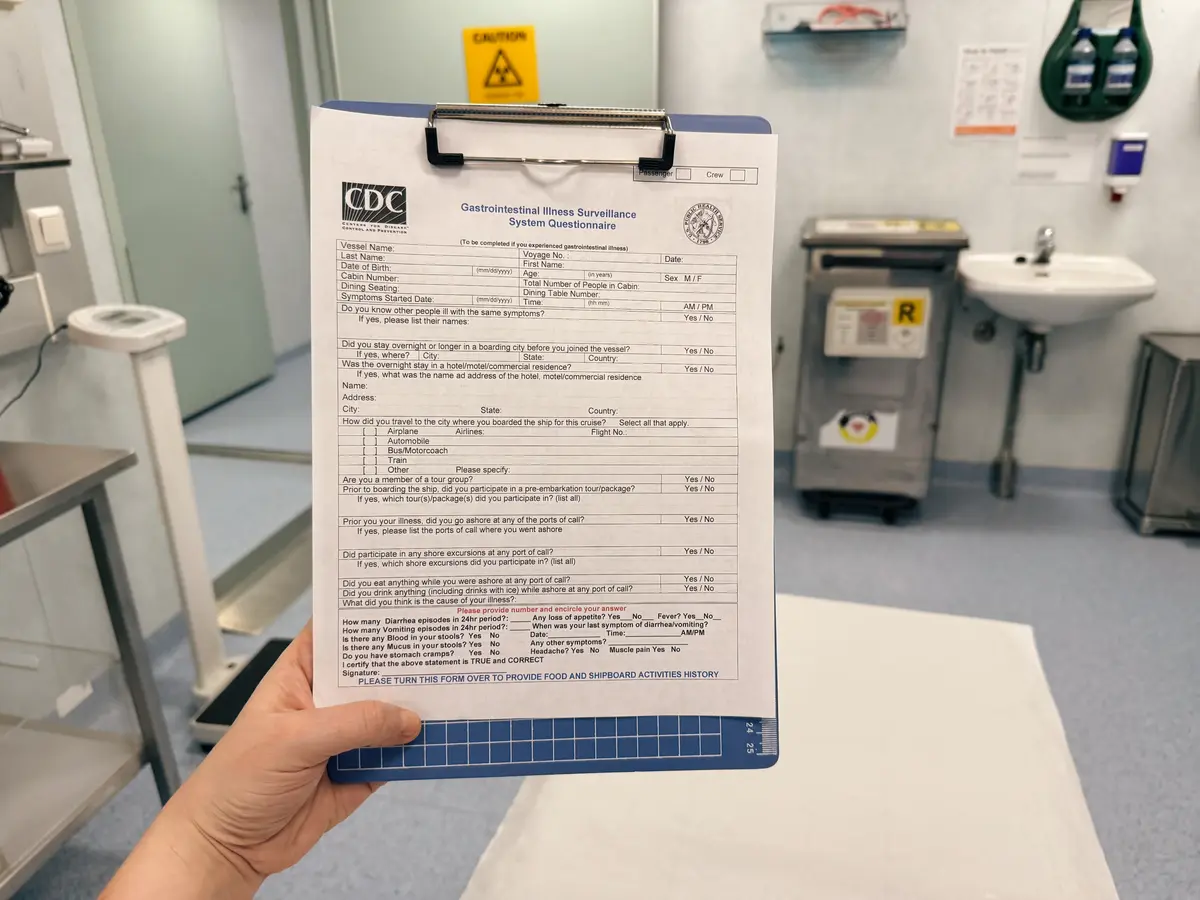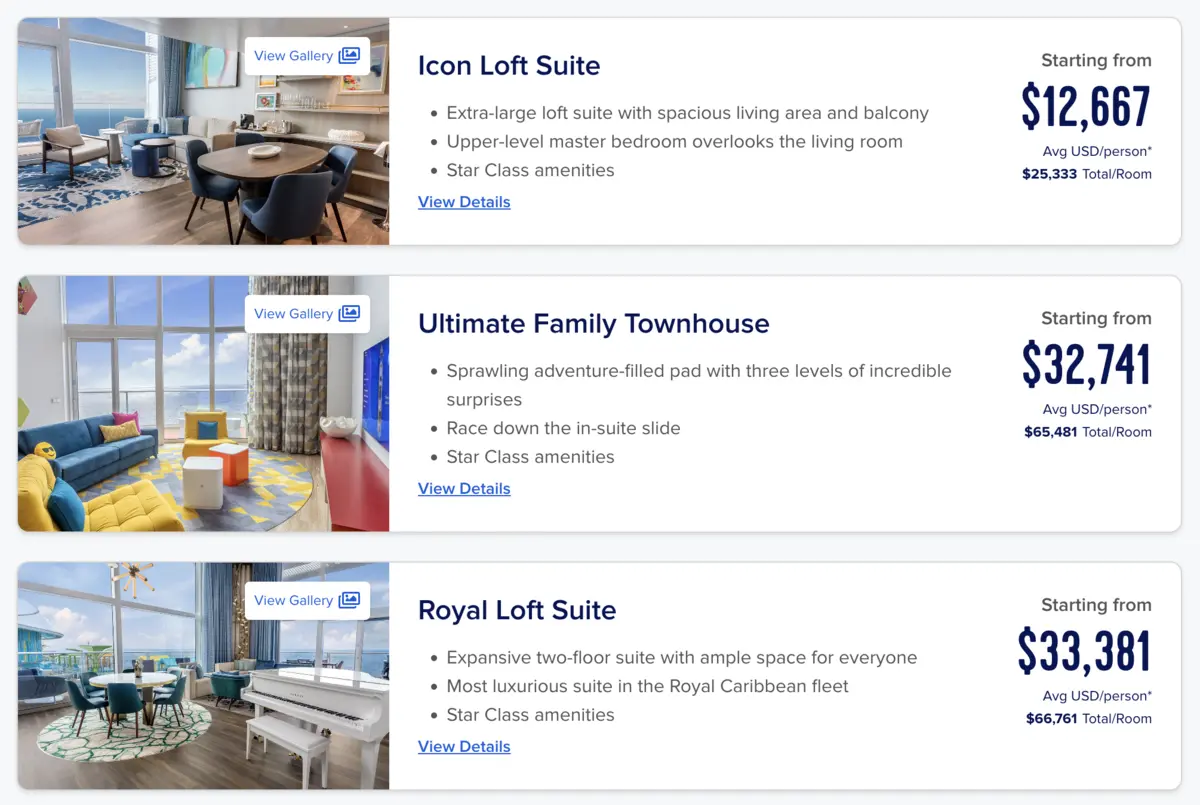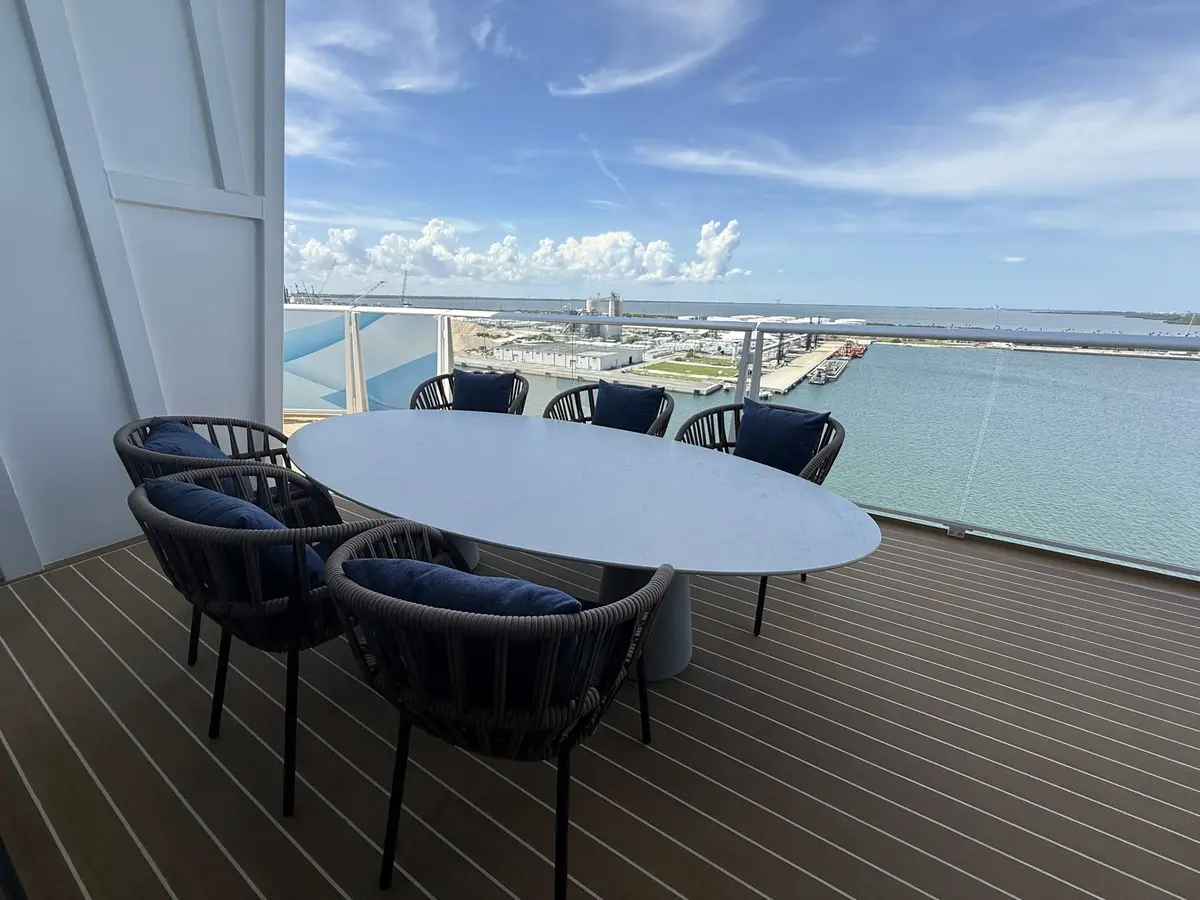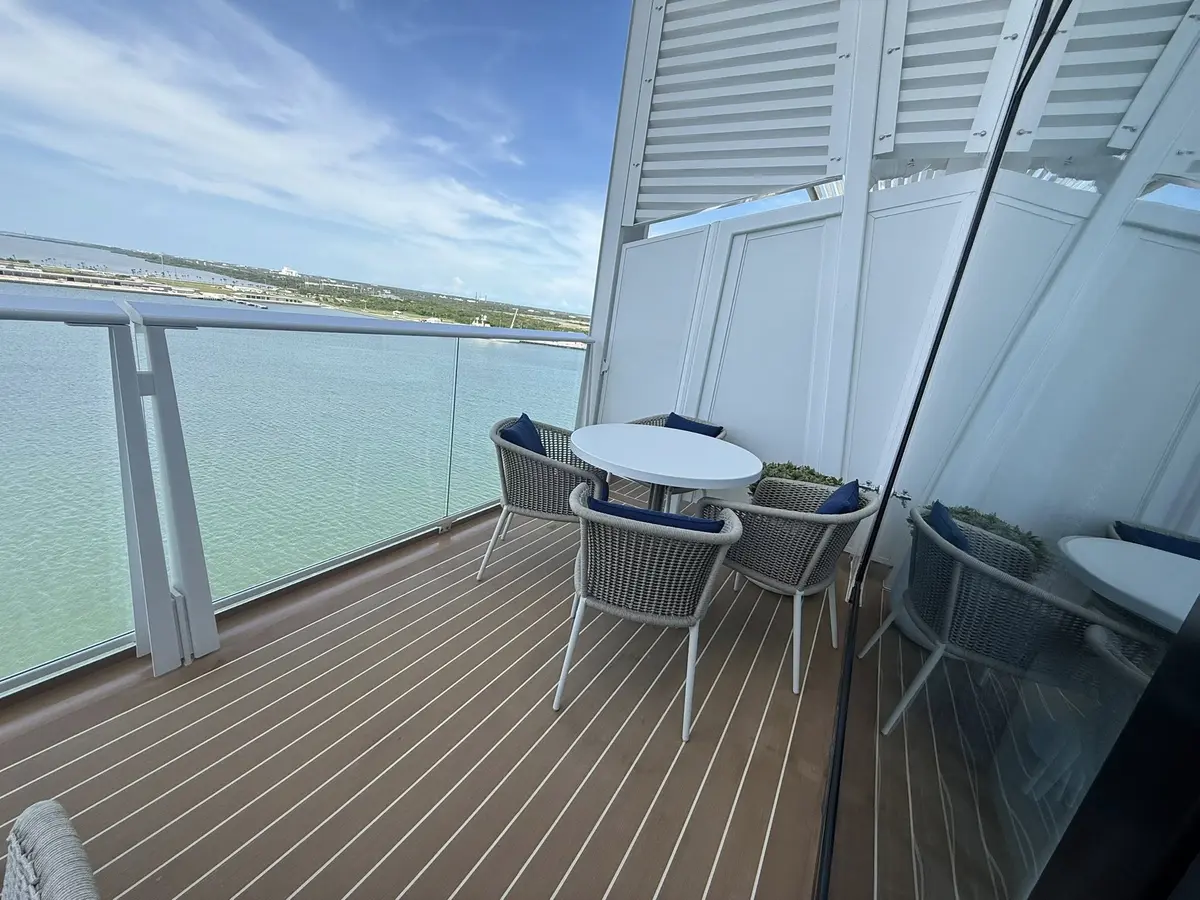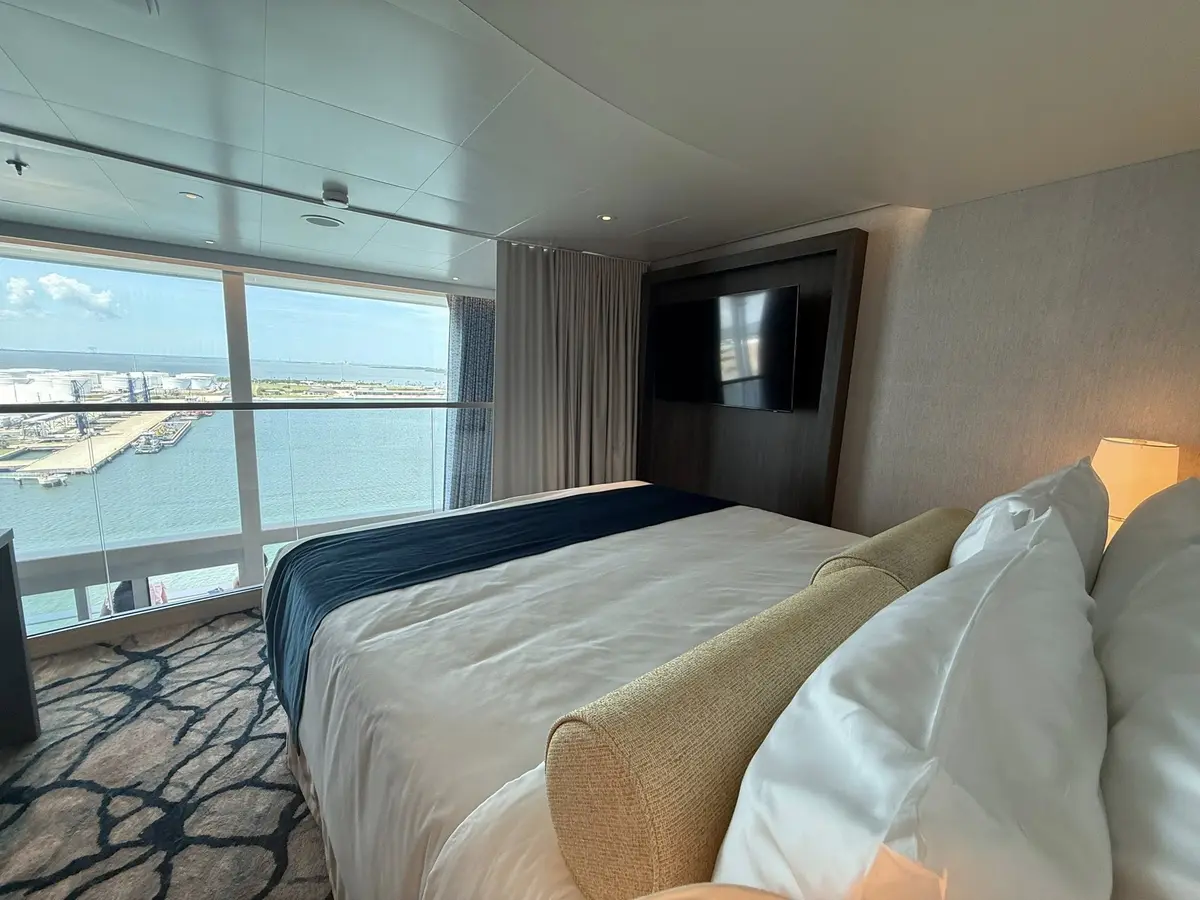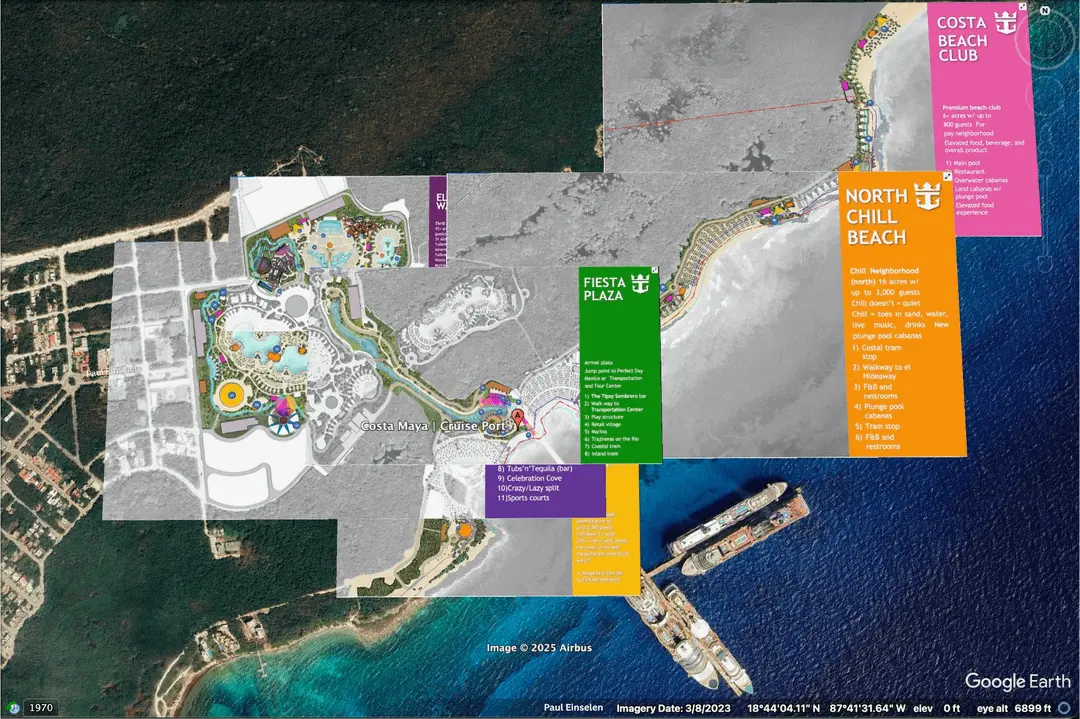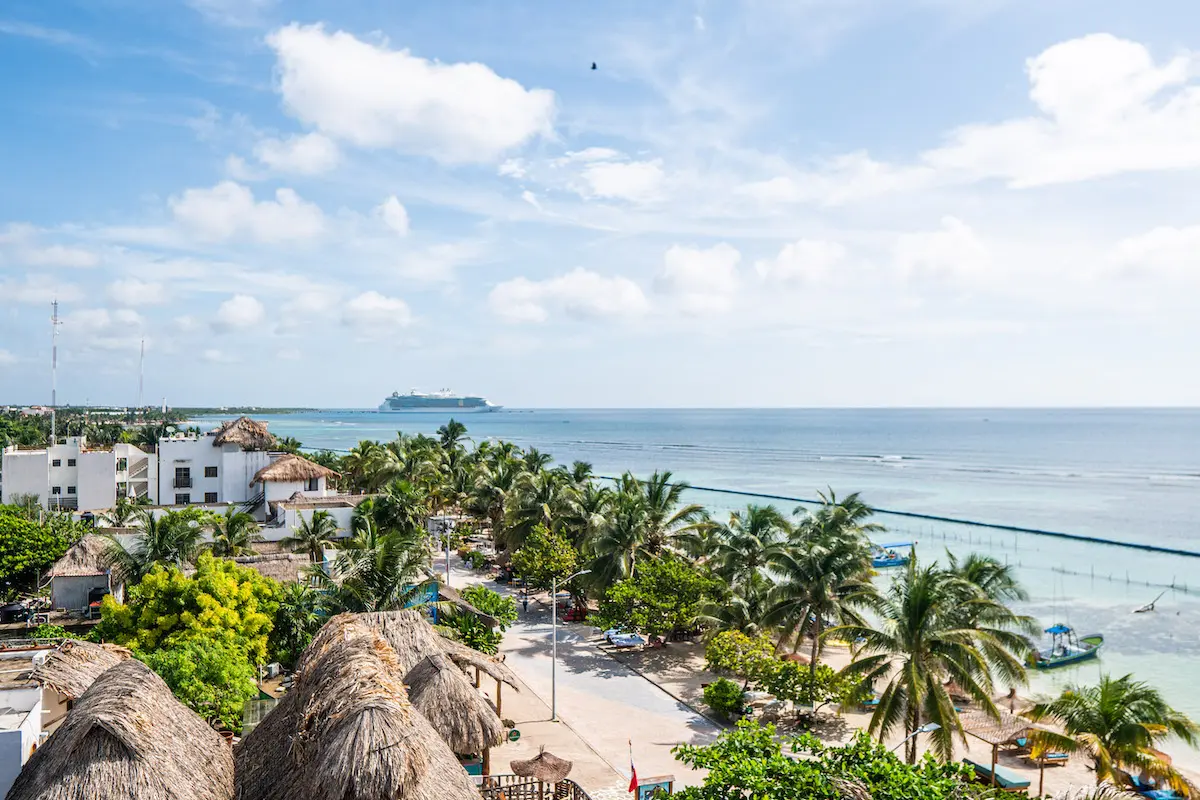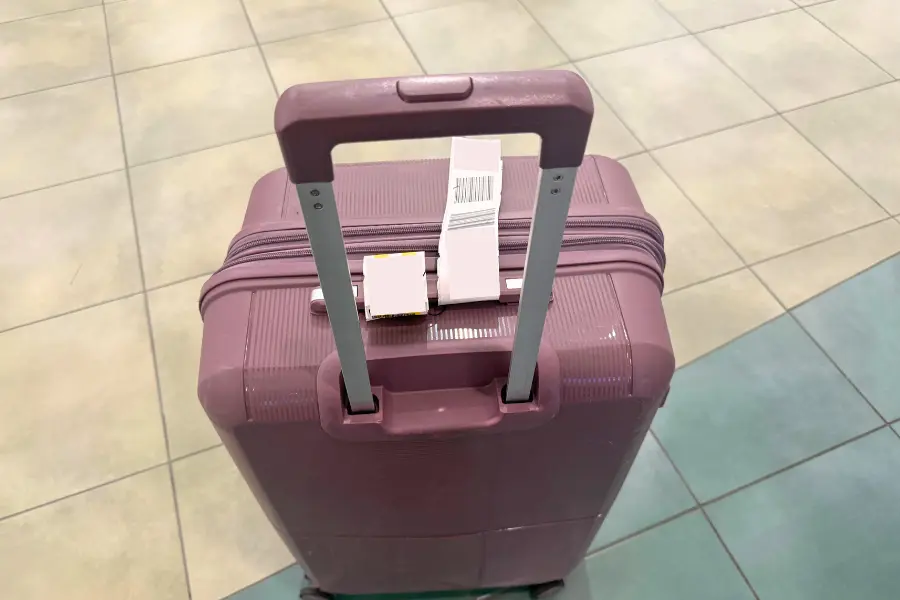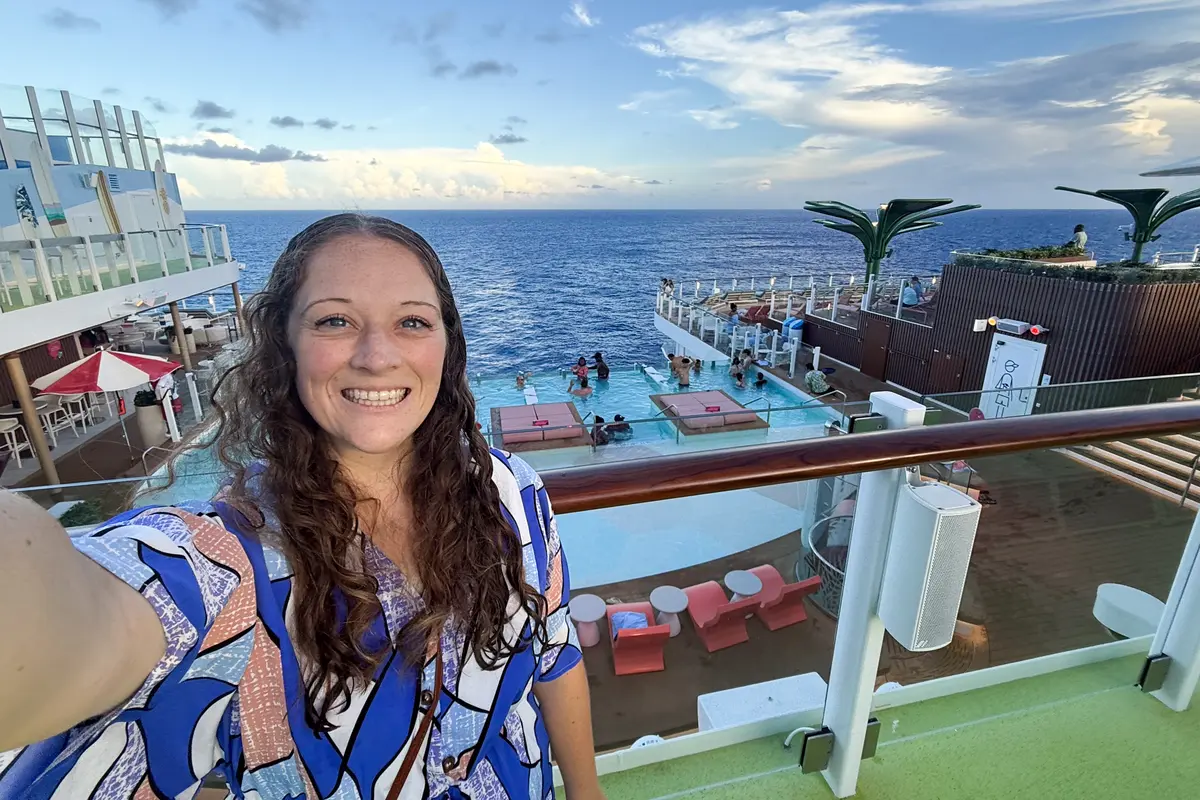It’s easy to stick to the status quo when cruising, but this year, I made it a goal to step outside my comfort zone. After taking four Royal Caribbean cruises in 2025, I tried a handful of new activities and shore excursions that took me by surprise.
Instead of saying “I’ll try that activity someday,” I made the most of my cruises and experienced all that the ships (and ports of call) had to offer.
In the process, I discovered some new must-dos... and some things I probably wouldn’t do again.
Whether riding down waterslides on the world’s biggest cruise ship or trying out a walking tour, these are the eight new things I tried this year. One even became my new favorite thing to do onboard.
First, I dared the Category 6 Waterpark
Cruisers rave about the Category 6 Waterpark on Icon Class ships, but I ran out of time to try it on my Icon of the Seas cruise last year. So, I gave it a try on this year’s Star of the Seas cruise. I wondered if it would live up to the hype.
In the past, I tried the Perfect Storm waterslides on ships like Freedom of the Seas, but they weren’t as thrilling as I expected. At one point, the water moved so slowly that I even had to push myself down the slide!
Read more: Icon of the Seas vs. Star of the Seas: Which ship should you choose?
Fortunately, the Category 6 Waterpark was everything I hoped it would be. I particularly loved the raft slides, which bring guests up, down, and around crazy twists and turns—and even over the side of the ship!
Unsurprisingly, the waterpark gets crowded during the day, and especially on sea days. I waited until dinner time to try the slides, and lines were minimal. If you’re hoping to avoid crowds at the waterpark, try to visit outside of peak times.
I attended onboard lectures on my Alaska cruise
Alaska is one of my favorite cruising destinations, and I spent a week aboard Anthem of the Seas this summer for a trip to the Last Frontier.
While onboard, I spent most of my time enjoying Alaska’s stunning scenery from the outdoor decks. From time to time, though, I attended activities around the ship, trying everything from trivia to craft classes, archery, and karaoke.
Read more: I did these 5 small things before my Alaska cruise that made a huge difference
My favorite activities to attend, however, were the onboard lectures. Royal Caribbean partners with Voyij, an Alaska marketplace, to bring local Alaskans onboard the fleet’s ships. These locals give lectures to guests about life in Alaska, sharing what it’s like to live in remote mountain towns.
A Haines-based artist was onboard my ship, and she gave several lectures about life in her small town of 2,000 residents near Skagway. I loved attending these lectures during my cruise, as it gave me a better insight into my ship's destination.
I booked an “On Your Own” shore excursion in the Mediterranean
When I set sail on the amplified Allure of the Seas from Barcelona this spring, I knew I wanted to book an excursion during our visit to Marseille.
Because I had been to the port twice before, I wanted to explore somewhere different from Marseille’s city center. After browsing excursions on Royal Caribbean’s Cruise Planner, I came across one that intrigued me more than the rest: an “On Your Own” tour to Aix en Provence.
This tour, as advertised, would allow me to explore the charming French city “on my own” instead of with a guide. The excursion included roundtrip bus transport to Aix en Provence, and we received around four hours of free time upon arrival.
For $52.99, I found the price reasonable for the convenience. I preferred the flexibility of exploring on my own versus following a rigid schedule on a guided tour.
I would book this type of excursion again, especially if I want to experience a city further from the cruise port.
I tried Luggage Valet for the first time on disembarkation day
A little-known disembarkation day hack on Royal Caribbean is to sign up for Luggage Valet.
With this service, you place your luggage outside your cabin door on the last evening of your cruise, and you don’t see it again until you arrive at your home airport. The luggage is transported from your ship to the airport and directly onto your flight.
Luggage Valet is only offered at select ports, and I used the service on my Alaska cruise from Seattle. Seattle-Tacoma International Airport offers the service free of charge aside from any applicable baggage fees from your airline.
Read more: Luggage Valet review on Royal Caribbean
It was extremely convenient. I disembarked my ship without worrying about picking up my luggage, and I bypassed all of the baggage lines at the airport.
I would definitely use this service again, as it made my disembarkation day totally stress-free.
I tried sharing a cabin with my parents, and it wasn’t as bad as I expected
I love cruising with friends and family around the world, but sharing a cabin with both of my parents wasn’t initially on my 2025 to-do list.
Last year, I planned a summer getaway to Greece with my mom on Explorer of the Seas, but my dad decided to join the trip just a few months before our May departure. At that point, most staterooms had sold out, so we added him as a third guest to our tiny inside cabin.
Read more: What it was really like sharing a 150-square-foot cruise cabin with my parents
I initially thought sharing a room would feel too cramped, but it wasn’t as bad as I thought it would be. During our week onboard, the three of us spent little time in our room, as there was so much to experience both on the ship and in our four ports of call.
My one gripe with sharing the room was sleeping in an uncomfortable pullman bed, but I would still share a cabin again if necessary.
I booked a historic walking tour in port
On my Greek Isles cruise, I booked a historic walking tour in Split, Croatia. It is now one of my preferred ways to explore a new port.
You can find walking tours through Royal Caribbean, but I booked my tour through GetYourGuide. The 90-minute tour was less than $20 per person, and it provided a convenient way to learn about the port’s history.
What I liked about the walking tour was that it only took up a small portion of my day. Following the tour, I was able to explore Split on my own for several hours.
Tours through Royal Caribbean can be convenient, but they're often more expensive than tours through independent providers. I’ll continue to book walking tours on cruises around the world, as they offer a great value and insight into local history and culture.
I attended the Love & Marriage Game Show, but it wasn’t my favorite activity
The Love & Marriage Game Show is a staple activity on every Royal Caribbean ship, but I never got around to attending it until this year.
The famous game show brings three married couples onstage to ask them lighthearted (and personal) questions about their life together. Although the game show is technically family-friendly, the answers are known to get a little spicy, to say the least.
I watched the show on Anthem of the Seas, and while it was entertaining, I realized that I prefer game shows with more direct audience participation. The Quest, for instance, brings all guests into the competition.
After learning far too much about my fellow passengers during the show, I don’t think I need to attend it again on future cruises.
Finally, I watched sunset from The Hideaway on Star of the Seas, and it’s my new favorite thing to do onboard
Of all the new things I tried on Royal Caribbean in 2025, swimming in The Hideaway’s infinity pool was my favorite.
Royal Caribbean’s Icon Class ships feature The Hideaway, an adults-only pool area in the aft of the ship. The neighborhood features a bar, hot tubs, and a picture-perfect infinity pool with unbeatable views of the ocean.
I couldn’t wait to swim in this pool for the first time during my Star of the Seas cruise. It was too stunning to pass up.
I headed to the pool around sunset on the last evening of my cruise, when most passengers had already left to get ready for dinner. With few guests around me, I enjoyed a magical sunset over the ocean. It was the best way I could think of to end a memorable vacation.
On future Icon Class cruises, I’ll be sure to visit The Hideaway for stunning sunset views, whether I’m taking a dip in the pool or sipping a fruity drink from the bar with live DJ tunes.
